#WHAT’S THEIR SIGNIFICANCE WITH LENORE
Explore tagged Tumblr posts
Text
It's not really related to the other conversation I was having about it, but I was already thinking about "The Conscience of the King" again (as one does), and the particular significance of the Kirk-Riley plot.
When I was first watching it, I thought Riley was super doomed, and we'd end up with Kirk as the last survivor standing to up the stakes of his decision. So for me, Riley's survival was very unexpected and intriguing. Even now, I feel like Kirk and Riley both surviving, and how that survival is handled in the episode, are much more effective and compelling for the narrative than the expected story line. I think the handling of Riley's survival shifts the stakes and dangers around the finale in a way that is far more resonant for Kirk's characterization and for what "The Conscience of the King" is really about than killing off Riley would have ever been.
To begin with, Kirk initially has no idea that Kevin "I'll take you home again, Kathleen" Riley* is one of the other surviving eyewitnesses. This ignorance is actually quite believable to me, given that both Kirk and Riley were children at the time, with Riley the younger of the two. Even if Riley had happened to mention his last name while they were trying to avoid starving to death or getting murdered by their own government, it's not exactly hard to believe that thirteen-year-old newly-minted genocide survivor James Kirk had more on his mind than remembering the full names of eight other people. The episode does make it clear, at any rate, that Kirk doesn't remember most of the other eyewitnesses' names, and specifically, had no idea that his mostly-upstanding crewman Riley is one of the other kids from Tarsus IV.
(The only other survivor Kirk definitely knows is Dr. Tom Leighton; Kirk is good friends with Leighton and his wife Martha, but not close enough to know much about Leighton's professional life or reputation.)
It also seems like Kirk hasn't ever tried to find out who the other survivors were, or what became of them later, despite having easy means of doing so. Rather, he has preferred to accept the official account of Kodos's death and to distance himself from the past as much as possible.
For most of the years between the genocide and the five-year mission, it seems like he found more comfort in philosophies and books and starships than rooting himself in any specific place or persona. In fact, there's a lot of reason to think he pretty drastically overhauled his entire presentation of his personality at some point in his 20s, and throughout TOS, he adopts and sheds different personas with what seems like ease—there is a control and performativity about him coupled with deep philosophical convictions that makes a lot of sense for someone repeatedly subjected to unfathomably traumatic, depersonalizing atrocities. Regardless, Kirk wanted to believe Kodos really was dead, and nothing could be done, and the only way forward was repression putting it all behind him (while still able to remember Kodos's speech to those slated for death, word for word).
It's only when he has reason to ask the computer for a complete list of the surviving eyewitnesses that Kirk links Kevin from Tarsus IV to the Lieutenant Kevin Riley of his own crew. He promptly asks for confirmation that they're the same person and receives it, which changes everything.
At that point, Riley's physical safety becomes a significant and unique concern for Kirk, above and beyond his usual preoccupation with the welfare of his crew. He has Riley demoted and separated from his peers to protect him—without explaining his motives to anyone, including Riley himself. He doesn't even acknowledge to anyone else that he knows Riley is the other eyewitness.
Meanwhile, Kirk maneuvers his way into trapping the Karidian players on the Enterprise with no escape route, so he can pursue his investigation into the murders of the other eyewitnesses without any serious impediment. He has very good reason to believe one of the players is murdering the eyewitnesses, most likely Karidian himself, but Kirk wants to be very sure about identifying Karidian as Kodos before he pulls the jaws of his trap shut.
This is all very understandable, but we end up with a cold, scheming, almost detached Kirk who is privately struggling to navigate the complexity of the investigation, the weight of the accusation he may have to make (but with it, the opportunity for justice at last), and the danger surrounding the serial killing of the eyewitnesses. Trapping the Karidian players on the Enterprise—that is, trapping the murderer on the Enterprise—puts himself and his crew directly in harm's way, a choice he rarely ever makes outside of the mandates of the five-year mission.
In fact, one of Kirk's most absolutely consistent qualities throughout TOS is his intense concern for his crew and general prioritization of their welfare as far as the mission allows. But there are a few occasions when he's forced to react to some kind of monumental, horrific event that has directly touched his own life, and in those cases, he tends to get consumed in dealing with The Horror and acts in ways profoundly unlike his usual self.
This doesn't only happen in "The Conscience of the King," but it's most conspicuous there. Kirk admits that he doesn't even know if he's after justice or vengeance, and when he says of his conduct around the investigation, "I've done things I've never done before," we can easily believe it.
Throughout much of this investigation, Kirk doesn't really talk to McCoy, a good friend. Kirk is prickly and standoffish towards Spock (something he almost never is in TOS), and as mentioned above, he tries to protect Riley by demoting him back down into engineering to keep him out of physical danger. When Spock correctly points out that Riley is a good officer who will take this as a punishment, Kirk brusquely shuts him down, and it's not completely clear if this is deliberate misdirection or genuine if displaced anger. Maybe he's cutting himself off from the person closest to him rather than face the emotional stakes of the genocide and more recent murders, or maybe it's a still more calculated (and highly unusual) attempt to keep Spock at arm's length.
Neither motive is sustainable, though. Spock's interpretation is later justified by a brief scene focused on Riley. Another officer jokes over the intercom about what Riley did to fuck up, and Riley admits that he has no idea what he did wrong, but finds it lonely and depressing to be so alone. The other officer half-jokes that Riley's heart is sore, and Riley asks Uhura to sing over the intercom so he at least feels like he's "not the only living thing left in the universe." Hell of a sentence in this context.
So at this point, Kirk's fixation on purely concrete, physical threats has led him to functionally isolate both himself and Riley. The fact that he and Riley share such a horrific experience and are now the last direct eyewitnesses to it still alive, yet Kirk's approach to this whole thing leads to Riley feeling completely alone in the universe—probably not the first time Riley has felt that way! all things considered!—pretty clearly signals that there's something wrong with how Kirk is thinking about this and approaching it.
It's not wrong in the sense of being directly immoral. Kirk's desire to protect Riley is both righteous and sympathetic, and his fear that Riley is in danger is quickly justified. Kirk has every right to try and stop the murders of the eyewitnesses (even if he weren't one of them!), and he's definitely right to pursue the justice that they've been denied for 20 years. But that's not all that's happening. Kirk leans on his professional power to get away with this, he calls in past favors, he generally jeopardizes the entire career/reputation that defines his fundamental sense of himself as a person, as well as leaving Riley convinced that his own career is in jeopardy as well, all to get the moving parts of these schemes in order. And Kirk does all this without explaining anything to anyone, including the other person most concerned.
Like, his way of handling this is just profoundly unhealthy for both of them. There's a reason that Kirk vacillates between "I don't want to rashly accuse this man of atrocities against sentient life with my sterling reputation backing whatever I choose to say, unless I'm really super ultra sure" and "maybe just fucking murdering this monster on the spot will let the dead sleep at last."
He acts this way here for the same reason, I think, that his response to Tom Leighton identifying Karidian as Kodos and desperately reaching out to him ("Jim, four thousand people were butchered ... Jim, Jim, I need your help") is indignant denial and effectively running away, yet he also can't resist the impulse to pick up the investigation anyway.
Kirk promptly starts researching the major figures involved via the powerful computers on the Enterprise; he reverses his decision to turn his back on Leighton and beams back down to join Leighton's cocktail party, seizing his chance to observe the Karidian players; with Karidian himself out of sight, Kirk zeroes in on Karidian's nineteen-year-old daughter Lenore as the obvious weak link and begins one of his most purely cold-blooded flirtations in the show, quietly maneuvering and/or extracting information every time they interact—and he initiates all of this before Leighton is murdered. And we'll see that vacillation repeat at varying points throughout the episode. Again and again, Kirk will resist truly engaging with the enormity of the genocide's legacy for him and others, but at the same time, we find him so clearly unable to move on, constantly shifting between avoidant uncertainty and this calculating, inexorable pursuit of justice/vengeance.
He's not the only one stuck, either. From almost the earliest moments of the episode, we see that Tom Leighton has built a successful career and loving marriage over the last 20 years, yet after his murder, his widow confides in Kirk that Leighton never really found peace. The rest of the episode makes it evident that this is equally true of Kirk himself. He has been very successful in his profession, like Leighton. He has built close relationships, most importantly with Spock, who has an intimate enough understanding of him to recognize the signs of danger and figure him out, like Martha. And like Leighton, Kirk has never found peace (something confirmed again as late as S3). And I would argue that in the end, it seems that Riley, too, has never really found peace.
Speaking of Spock! As all of this is unwinding, we repeatedly cut to Spock picking up on Kirk's dodgy behavior and investigating him. McCoy is reluctant to connect Kirk's ostensible interest in Lenore Karidian to the unexplained demotion of Riley or to whatever happened with Leighton—he really wants "Lenore is hot" to be the only explanation. But to Spock, all these disparate oddities are plainly related, and it frustrates him that McCoy refuses to see that or ally with him in breaking through to Kirk somehow.
Spock also correctly guesses that Kirk's pursuit of Lenore is actually about her father, even before discovering the genocide. When he searches for some underlying connection between Kirk's odd behaviors, he looks for common history between Riley, Kirk, Leighton, and Anton Karidian. At any rate, to Spock's analytical mind, the demotion of Riley is obviously part of the puzzle and obviously important. Of course, the Venn diagram of red flags that only Spock sees leads him to discover the actual common history no one is talking about.
It's this silence and isolation that ultimately makes Riley vulnerable to Lenore's murder attempt. The fact that he was lonely, and kept the intercom on to listen to Uhura sing and talk to his friends, is the only reason he survived Lenore poisoning him. He was able to call for help in time because he'd already reached out to other people. And it's in the wake of Riley's near-death that Spock is finally able to browbeat McCoy into (sort of) backing him in getting through to Kirk, their mutual friend, even if they relate to him in different ways. Spock's sharp question to Kirk just cuts through all the silence and scheming and bluster:
Why do you invite death?
This forces Kirk into an honest conversation about his plans and motives and what's going on with him. He's actually ambivalent until McCoy suggests letting it go, even if Karidian is Kodos—an option Kirk and Spock both sharply reject throughout the episode, but especially here:
MCCOY: What if you decide he is Kodos? What then? Do you play God, carry his head through the corridors in triumph? That won't bring back the dead, Jim. KIRK: No, but they may rest easier.
Apart from McCoy's struggle, the main implication here is that Kirk is considering not just a formal accusation against Karidian vs holding back due to insufficient evidence, but the third possibility of just straight-up murdering him. This would destroy Kirk's life as he knows it, of course, but he's at least considering that it may be the only way to make things right.
That choice wouldn't make him another Kodos by any stretch of the imagination, but it would reduce his existence to something entirely shaped by Kodos, by the genocide, by the genocide-apologia murders—by people who repeatedly suggest he's subhuman. Kirk has spent two decades crafting a life and personhood that isn't defined by what was done to him and Riley and Leighton and thousands of others, and he's on the edge of torching it all.
I think this is the real fundamental tension of "The Conscience of the King." The whodunnit of "Karidian is Kodos, but the murderer is Lenore" is far less central and compelling than what psychological path Kirk is going to take. He might choose pathological caution, demanding an impossible level of certainty that will let him avoid making the call and keep running; he might choose justice, making the accusation that all evidence in front of him as well as his own memory tells him is true, putting himself through reliving it as the older surviving eyewitness, but also living to see Kodos held accountable; he might choose vengeance, murdering a now-unarmed, elderly war criminal on the spot even if it means losing everything else that matters to him.
He's still hovering between those options as McCoy leaves the dispute. Spock, however, stubbornly stays with Kirk and keeps pushing. Because of that, Spock hears the hidden overloaded phaser that would have taken out the whole deck. That's what gives them enough time to evacuate the deck and safely dispose of the phaser. If Spock had noped out and gone back to the bridge or science labs, Kirk would have died. But Spock cares too much about Kirk and understands him too well to do that. Kirk survives because of his relationship with Spock.
It's the nearly-realized threat to Kirk's crew combined with the murder attempt against Riley that angers Kirk enough to abandon his schemes and just confront Karidian directly. The implication that Kirk is considering murder becomes explicit:
KARIDIAN: Blood thins. The body fails. One is finally grateful for a failing memory. I no longer treasure life, not even my own. I am tired! And the past is a blank. Did you get everything you wanted, Captain Kirk? KIRK: If I had gotten everything I wanted, you might not walk out of this room alive.
While all this is going down in Karidian's quarters, Riley has recovered in Sickbay from the poisoning. He happens to overhear McCoy's medical log mention that the motive for poisoning may be the possibility that Karidian is Kodos.
Riley, younger and more straightforward and impetuous, isn't afflicted by Kirk's indecision. He slips out, steals a phaser, and sneaks backstage to the Karidian players' performance, hearing enough of Karidian's speech to recognize him as Kodos and try to avenge his family. But as soon as Kirk receives reports about Riley's disappearance and the theft of the phaser, he knows what Riley has set out to do—the very thing he's been considering.
He orders Riley found and restrained, but seems to know this won't succeed, and rushes to the theatre himself. At this point, the stakes of the Kirk-Riley drama crystallize. Kirk's fixation on Riley's physical safety has always been short-sighted. The deliberate isolation of either himself or Riley has been a mistake from the beginning. The greatest danger to both Kirk and Riley has always been that either of them might self-destruct and assassinate Kodos, closing off the possibility of moving past him and what he did to them. Their lives would never be free of him.
Erin Horáková's famous "Kirk Drift" essay argues that the person most wholly defined by Kodos and the genocide at Tarsus IV is ultimately Lenore Karidian. Obviously, Kirk and Riley are in no danger of becoming the next generation of space Nazi genocide apologists. But they are in danger of their fundamental, autonomous, full personhoods—personhoods explicitly placed into doubt by both Kodos and Lenore—becoming reduced to monuments to Kodos, as Lenore's is. And I think that's a very fair reading.
The solution isn't for Kirk or Riley to kill him, nor for either to detach himself from the full horror of what happened. It's for Kirk to save Riley by personally finding and stopping him from reducing his life that way. I'm not sure anyone else alive could have gotten Riley to back down, nor that Kirk could have if they weren't finally in the same physical space. And I think the point at which Kirk stops Riley is the point at which we feel certain that Kirk isn't going to go down that path, either. It was for me, anyway!
I think it's also significant that the backstage conversation between Kirk and Riley is what triggers Kodos's attempt to confess to Lenore and express any kind of remorse for what he did. Like so many other like him, he thought he could unleash atrocities in his official capacity and then switch it off and have a normal family life, with an impermeable wall erected between the atrocities and his supposedly pure and innocent loved ones. But that was never going to happen, and Kodos is forced to face the reality that everything he touched was going to be tainted. Taking the shot intended for Kirk isn't redemptive; it's his only way out.
And that ultimate confrontation only happens because Kirk finally understood that protecting Riley meant more than keeping him alive.
-----------------
*Yes, I know this role was not originally written for that Riley. Irrelevant to the end result!
#me: this will just be a quick post about how it seems significant#that kirk and riley both seriously consider just murdering kodos and kirk goes from isolating riley and himself#because he can only understand saving riley in terms of physical safety - and isolation nearly gets riley and himself killed -#to saving riley by keeping him from doing what he himself is deeply tempted to do. and saving riley (for real in person) saves himself#i thought i'd write maybe three paragraphs in a morning#hahahaha. ha.#anghraine babbles#long post#star peace#james t kirk#kevin riley#spock#kodos#lenore karidian#star trek: the original series#anghraine's meta#tos: s1#tos: the conscience of the king#cw genocide#thomas leighton#c: who do i have to be#also though this is much more of a kirk episode it's interesting that this is such a good spock episode.#he's ethically instinctively and factually right about EVERYTHING at every turn
34 notes
·
View notes
Text
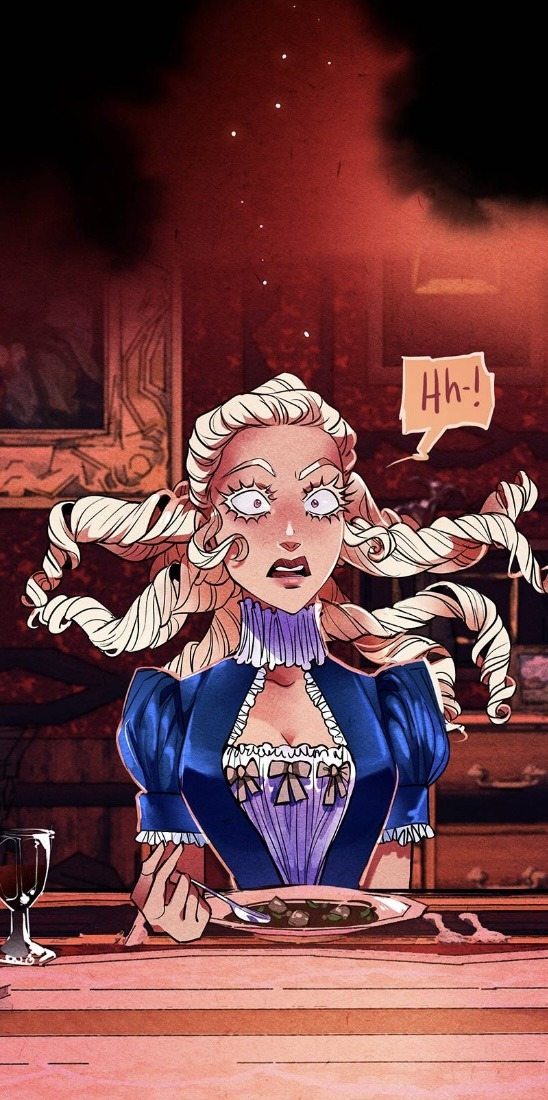
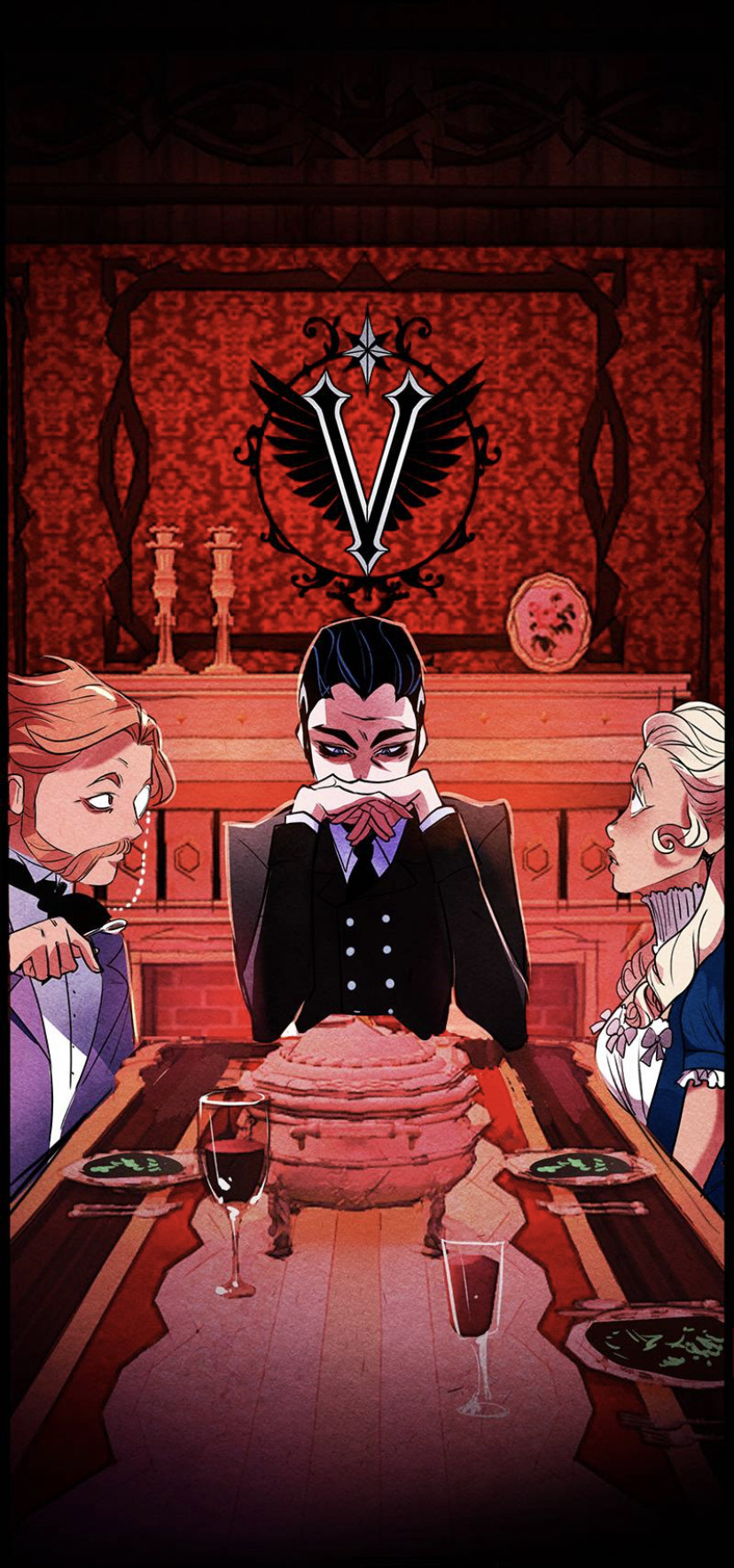


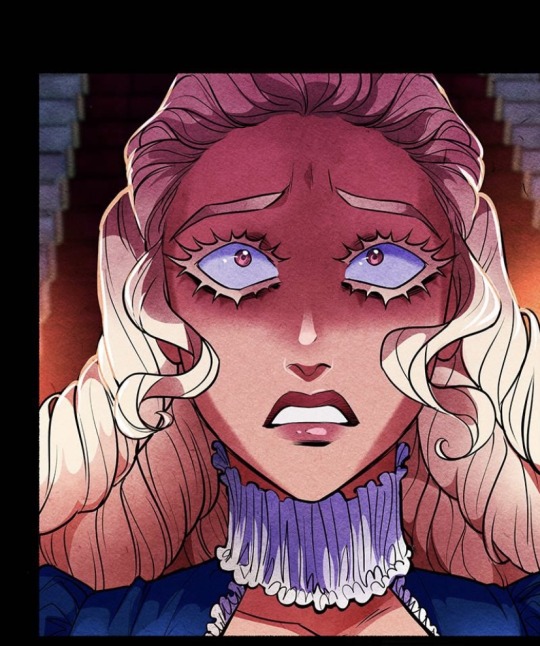

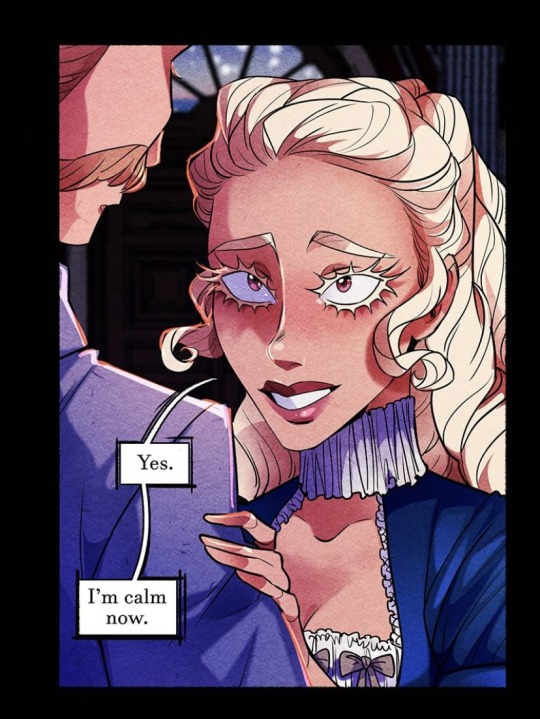
🔥
#Nevermore#Nevermore Webtoon#Webtoon#an. episode#Like wow#that intro sequence was so epic#Again TENTACLES#WHAT IS THEIR SIGNIFICANCE#MEMORIES??#IDK#anyway THE FAMS#AND NAMES#Vandernacht is actually a pretty sick name#Like if Lenore’s name wasn’t cool enough: Lenore Vandernacht#And her… parents#Thaddeus and Lucille Vandernacht :/#I love how Anna’s like “oh dude I could checkmate you in under two seconds just wait”#I wonder like… Lucille are you good#I guess because your only son and heir died and now you’re pretending like your daughter doesn’t exist#So it’s like your children are all gone and it’s just you and your husband#She’s probably not good#Also Annabel are you good#It makes sense for her to have anxiety but also poor bby…#Also that vision at the end just AUGHHHHHHHHH#NOT WHAT I NEED HAHAHAHAHHAAAAAAA#But it’s fine she’s heroically riding to their house and being epic#OH AND IT’S ACTUALLY FINE BC HER PARENTS AREN’T THERE AHHAHAHAHAHHHHAAAAAAAAA#oh this is great#Uhhh yeah cool ep excited to see the rest of the flashback ok byeeeeee#Also if you saw me post this yesterday no you didn’t 😂
54 notes
·
View notes
Text
SOTR SPOILERS
anyway. Back to my obsession.
-Thinking about Tam Amber and Carmine Clerk "not again". All the covey singers are dead (THEIR SONGBIRDS). Maude Ivory, Lucy Gray, Lenore Dove. All of them are dead, and the coveys don't sing anymore. That is why Katniss knows only two of their song. The only survivors are musicians (and probably just the men. I feel like this has to mean something, but maybe I'm just crazy.)
-Thinking about Clerk Carmine, that we know is the fiddler in the Odair's wedding, playing alone. (thinking also about Haymitch seeing him play. Did he talk to him? Did they ever talk about Lenore Dove? Did Carmine Clerk forgive him? Maybe he never blamed him at all.)
-I wonder if at the end of the war Carmine Clerk was able to talk with others coveys, maybe from other districts (because they were travelers, maybe they were separated before the war)
-Barb Azure. We don't know anything about her. She vanished from the narrative. Is she Burdock's mother? That would explain his connection to Lenore Dove and why Burdock knows the covey's song (ofc he could also have learned it from Lenore Dove, even tho I would argue it's weird that Katniss seems to have Maude Ivory's exact skill for remembering music). But what happened to her? She is not dead, because if she was, she would have been probably buried next to the other girls. (MY SHAYLAS) [Also I feel like it's significant that the singers are the first to die.] If she is Burdock's mother I wonder what happened to the girl she was seeing. Was she forced to marry, to keep her secret? Or maybe she was bi and she fell in love with a man? But then why doesn't Burdock have a covey name? (even tho it's not lost on me the fact that Everdeen is really similar to Evergreen) Maybe because she thought it was starting to be dangerous? I also read a theory that Burdock is the niece of her girlfriend. That would make her his aunt, and would explain why he hasn't a covey name. I need more lore, I'm going insane.
-Snow is definitely the culprit of their music getting banned. He really wanted to destroy them, all because of Lucy Gray. She really did a number on him, he is still obsessed after all this time. Pathetic little man.
-Also can we talk about the fact that in 40 years he was able to make Panem homophobic again?
-Beete wife and second son?? They are dead right? I don't remember them, I will reread the series soon, but I feel like I would remember if they were alive. So Snow kept his wife and his second son alive, to keep him doing what he wanted, just to kill them after some time?
-Wyatt makes my heart bleed. I love him so much, every time he talks I feel like I'm gonna cry. Imagine knowing your father will accept bets on you. Also during the reaping some of his family said something along the lines of "you brought him bad luck" (I read it in Italian so I don't know the exact sentence) Does that mean someone already bet he was going to be reaped? That honestly kills me.
-I also kinda like WyattxMaysilee. I feel like I'm alone in this. But also I think she could also be a lipstick lesbian. I'm conflicted. This is not really important, just some thoughts.
-Thinking about all the tries it must have taken the rebels to finally win. How many mockinjays died in their arenas, because it was just not the right time? They tried, but they couldn't. And no one knows what happened. I hope that in the future schools of Panem they will talk about all of them.
-The boy who created sparks waiting for the girl on fire. Inconsolable.
-Please Suzanne give us Annie's game because after this book I believe wholeheartedly that she tried to destroy her arena and went mad because they tortured her.
-Haymitch having to hit Asterid with a stone. UGH. This book makes me sick to my stomach to a concerning degree.
-Also haymitch being closed in a bird cage?????? This will haunt me.
-Merrilee. In the original series she is always in bed. She has the drugs to sleep. I feel like her illness is just depression. I always thought about it but I think this is confirmation.
#thg sotr#sotr spoilers#sunrise on the reaping spoilers#covey#sunrise on the reaping#haymitch abernathy#katniss everdeen#maysilee donner#lenore dove baird#maude ivory baird#lucy gray baird#barb azure#clerk carmine#tam amber#president snow#wyatt callow#annie cresta
393 notes
·
View notes
Text
Coriolanus Snow: The Hanged Man
I still have yet to read Sunrise on the Reaping (hopefully this week). Instead, I'm going to fulfill my promise in this answer and write about Coriolanus Snow, because The Ballad of Songbirds and Snakes is, in my opinion, the most ambitious and successful narratively of The Hunger Games novels, and I constantly see people reducing the narrative from its tremendous nuance and complexity to a simple moral tale of "you can't fix him, silly girl" and/or "manic pixie dream girls aren't real."

Thinking Snow was a narcissist or born bad from birth misses the entire point of the novel. Thinking that he didn't really love Lucy Gray also misses the point. The point is that he did love Lucy Gray, and he still turned into a narcissistic villain because he has the freedom to make his own choices, and he makes all the wrong ones.
Sorry, Suzanne Collins likes love stories. She's going to keep writing love stories, because the love subplots play integral roles in the themes of both prequels and the main trilogy of The Hunger Games. They're part of the thematic point of each story, and while I do think you can make an argument that Gale's entanglement with Katniss is weaker than Katniss and Peeta, Lenore and Haymitch, and yes, even Lucy Gray and Coriolanus, you can't really argue that the romance is a "distraction" from the main themes and actually have a good understanding of the novels. Love is not extraneous to these books; it holds them together.
So, yes. The Ballad of Songbirds and Snakes is a love story. It just doesn't end happily ever after. See, Eren and Mikasa in Shingeki no Kyojin, or Catherine and Heathcliff in Wuthering Heights. Not all love stories end well! Not all tragedies are romantic tragedies like Titanic or Romeo and Juliet! Sometimes love doesn't have so clear a role in saving the day--but it could have, and that itself is the tragedy.
Sejanus: Wounded Sons Bearing Sins of the Father

Yes, Coriolanus is self-focused and self-centered. He is constantly thinking of how certain aspects can benefit himself, how he can restore his family's name and honor, how he can end up on top. He clearly feels the tear between a mother who died in childbirth and a father who had high expectations, but whom Coryo can barely remember.
However, I'd argue that as portrayed in the novel until the last quarter of the story, Coryo's self-centeredness is not a sign of narcissism so much as it is a realistic portrayal of a traumatized child.
You see, children are by nature egocentric, and Collins portrays this well in her books. They don't understand that the world is greater than what exists in their mind, and grow to understand it more. Coryo is stuck in one place (the Capitol), starved, loses both his parents, and understandably, doesn't really see outside of his own perspective until he meets Lucy Gray.
This marks his chance to open his mind. Coryo actually gets an Empathy 101 course from the story: he rides in the filthy car with the tributes, gets dumped unceremoniously into the zoo, and then gets sent into the arena. The story repeatedly challenges him to open up his mind, and he starts to do so, only to fold back in on himself at the end.
But what if I told you that Coryo is at least on equal standing in terms of self-centeredness and only thinking about how he feels with another significant character (who also is working through trauma and the burdens placed by a father). Yes, I'm talking about Sejanus Plinth.
But wait, Sejanus wanted to stop the Hunger Games!
Yes, he did. He went about it in the most immature way that ultimately just harmed everyone around him. Marcus, whom Sejanus didn't fully empathize with. His own parents and Coriolanus, who almost got killed when he's forced into the arena to save him. Coriolanus kills Bobbin doing so, and is traumatized by it. The girl locked up. Sejanus doesn't think his plans through.
He's not a bad person. His goals are noble, righteous even. But he, like every young activist ever, doesn't fully comprehend the effect his actions have on others, doesn't comprehend that good intentions don't justify the means, and that a righteous cause doesn't mean innocents can't get hurt through it. And while it sounds like I'm being harsh on Sejanus, these ideas are all thoroughly explored in the main trilogy, so I'm guessing Collins was very aware of this and Sejanus is intentionally a parallel to Coriolanus.
Actually, Sejanus isn't just a parallel. He symbolizes a part of Coryo, the heart to his wisdom. If they'd combined forces, they could have changed the world.
I'd also argue that people who think Coriolanus never cared about Sejanus are misreading to the same level as people who think Katniss never really cared about Peeta. They aren't reliable narrators. Coriolanus looks at him with a certain disdain, yes. But that's because he's uncomfortable looking at his child self, being vulnerable, traumatized, humiliated, and poor. Yet Coryo warns him over and over again when he doesn't have to.
But that's wanting control!
Well, yes. Where do you think pathological needs for control come from? Often, it originally starts as genuine concern from a traumatized person who has had very little control in their lives and has no idea how to express it as concern.
Sejanus is also, in Jungian terms, Coriolanus's inner child. Sejanus is constantly focused on his childhood and outspoken about it, while Coryo is actually the same way but not outspoken about it. He represents the trauma of war, the difficulty relating to parents (even though Sejanus has parents, and Coryo does not), the desperation to both grow up and find one's own identity, stand up for what you believe in, and to please the parents who gave you life.
So when Coryo eventually turns Sejanus in, he in essence dooms himself, though he naively doesn't think this will happen. He--rather childishly--assumes that Sejanus will just be in trouble but that his daddy can bail him out. After all, that's what's always happened before. His parents are powerful. He even writes to Sejanus's parents asking them to help.
Except, at some point your parents can't save you. I do read Coryo's trauma after Sejanus's hanging as genuine--he vomits and clearly feels guilt. He wanted a parent to rescue him, but none can.
Even as Sejanus dies, he cries "Ma, Ma, Ma!" for his mother. The tragedy is that by killing Sejanus, narratively, Coryo ensures that he will never allow this wounded child within himself to grow up. The loss of his parents will never heal.
Coryo ending up being essentially "adopted" by Sejanus's parents who completely miss his role in their son's death symbolizes him not growing up, because he cannot ever be really honest with them. He's not integrating with Sejanus and becoming more himself; he's lost his identity. He gets parents, but they're a lie, and he'll never experience the love and comfort of parents that he's craved.
He also then carries out his father's legacy of the Hunger Games, trying to please a ghost rather than real people around him. He chooses the dead, not the living.
Dr. Gaul and Casca Highbottom: Fear

Fear is the opposite of love.
This idea is Biblical and also pretty much embodied by the philosophy of Dr. Gaul, the woman Coriolanus hates, is absolutely terrified of, but becomes just like. It's no coincidence that Lucy Gray and Dr. Gaul are constantly pitted as opposites in Coriolanus's mind, because they represent his two potential paths in life.
Dean Highbottom traced the silver rose on the compact with a finger. “So, what did she say when you told her you were leaving?” “Dr. Gaul?” Snow asked. “Your little songbird,” the dean said. “When you left Twelve. Was she sad to see you go?”
Dr. Gaul is actually a manipulative abuser. She isolates Coriolanus from his friends by strategically alienating him from Clemensia. She sends him into the arena to save Sejanus, reinforcing to him that she has total control over his life. She, like Highbottom, knows the truth of his family situation and exploits it.
She thrives on chaos and cruelty, using the fear of her students, and Coriolanus's particular fear of her, to create a bond and further her own malicious aims.
The irony is that Coriolanus is capable of cruelty and manipulation. We know this not just from the original trilogy, but from his whole persona in the story. Dr. Volumnia Gaul is Coriolanus's Jungian shadow, the part of ourselves we try to repress and deny.
However, the only way to healthily handle the shadow is to accept it. Coriolanus instead murders it and thus it consumes him. In the end, Coriolanus becomes most like the person he fears most: Dr. Gaul. It's a tragically childish way of protecting oneself.
You see, I said murders because Dr. Gaul isn't his only shadow. The other shadows are present in Casca Highbottom and in Coriolanus's own father, whose shadow Coriolanus is constantly trying to live up to.

He doesn't understand Highbottom's hatred of him, which is a projection of his inability to understand his father's loss as a child. He tries and tries to embody whom he thinks his father would like him to become, and he tries and tries to win Highbottom over. When Highbottom comments about Arachne's funeral being over the top, Coryo assumes he's actually trying to bond with him, and admits he felt the same way--a lowering of the guard. Instead, Highbottom informs him that he's just like his father, using that one moment of vulnerability to tell Coriolanus he's a bad person.
“My condolences on the loss of your friend,” the dean said. “And on your student. It’s a difficult day for all of us. But the procession was very moving,” Coriolanus replied. “Did you think so? I found it excessive and in poor taste,” said Dean Highbottom. Taken by surprise, Coriolanus let out a short laugh before he recovered and tried to look shocked. The dean dropped his gaze to Coriolanus’s blue rosebud. “It’s amazing, how little things change. After all the killing. After all the agonized promises to remember the cost. After all of that, I can’t distinguish the bud from the blossom.” He gave the rose a tap with his forefinger...
The irony is that Highbottom ends up creating a tragedy of his own. In assuming Coriolanus is just like his father, he helps shape Coriolanus into becoming exactly just like his father. He reinforces to Coriolanus that he can't trust others. When Coriolanus murders Highbottom via his addiction (something he can't be free from), he allows his shadow to consume him.
Our assumptions about people shape who they become. This is at the core of the novel's themes, but it's also countered by Lucy Gray and her internal freedom.
Lucy Gray: Performance and Freedom
If Sejanus is Coryo's inner child and Highbottom/Dr. Gaul are his shadows, then Lucy Gray is his anima, in Jungian terms. Anima literally means "soul," and Lucy Gray does symbolize his soul (symbolism isn't literal--she was her own person, and that's part of Coriolanus's downfall: that he can't accept that).

Lucy Gray starts off the series as a child singing as she's dragged away to die, and in her Coryo sees himself. Him greeting her with a rose is a symbol of him acting like his own mother (as the roses are associated with her--the powder tin, etc), and him entering the truck and then being unceremoniously dumped into the zoo is not only a chance to empathize with Lucy Gray (which he actually does), but to see his own circumstances from a new perspective.
Being a "Snow" isn't a gift even if it seems like it is. It's a prison, and more than that, it's a zoo. People gawk at him because of his name, but in reality he's starving and desperate to survive even after the war. Him being locked in there and then seeing what Lucy Gray endures at the zoo is him being given the chance to look at his own circumstances as a child locked away in the Capitol and starving.

Coriolanus sitting and eating with Lucy Gray as an equal is a sign of maturity, and so is his determination to sneak her food and keep her alive. Yes, it's a bit egocentric in a childish sense, but he's literally a teenager.
While Coriolanus will later lose himself to the fear that Lucy Gray is just performing in her relationship with him because it would save her life (and I've read some interpretations agreeing with this, which I don't think the book supports at all), the irony is that Coriolanus Snow is performing too. Every action he takes he thinks about how it will appear--and that's not just with Lucy Gray and his role as a mentor in the Hunger Games. He's stuck performing too.
Both Lucy Gray and Coriolanus are both performers, and more than that, they have to play the role the Capitol gives them. The Capitol says Lucy Gray is District 12 and has to die for that, but Lucy Gray is actually Covey and never participated in the war. Coriolanus is a Snow and that commands respect and expectations, yet his family is actually still starving and on the verge of eviction. Neither neatly fit in the roles the Capitol declares they are based on heritage and setting, but they have to endure the expectations and burdens of those roles nonetheless.
However, Lucy Gray finds freedom in performing her songs and culture. Performing doesn't equate to fake, and once you strip the layers of someone, you can trust them even in their performances.
Coriolanus also faces a way to use his background and performance to help, and he does use it to save Lucy Gray in the arena. He also has multiple options of which Snow he wants to become: his mother. Tigris. Grandmama. Or, his father, the one he actually thinks about the least until the end.
It's Lucy Gray's free spirit, the way she turns her prisons and performances into art, that draws Coriolanus in. Yes, when he kisses her at first he does think of her in a jealous, possessive way. Given his background and given that he's a teenager, that's not abnormal. He's been trapped in one city his whole life.
So when Coriolanus is sent to District 12, he symbolically has the chance for freedom, too. He could choose to open his mind in the districts, to freedom. He has a chance.
Sadly, he hangs, lies to, and then shoots his chance.

The Hanging Tree
So, anima has four stages.
Eve (mother)
Helen (romantic interest)
Mary (religious devotion)
Sophia (wisdom, guide to the inner life)
In the beginning of Coriolanus's relationship with Lucy Gray, he associates her with his mother (the rose, the compact). He even gives her his mother's scarf (yes, there's some Oedipal imagery). Highbottom even calls it out:
“Your pretty, vapid mother, who’d somehow convinced herself that your father would give her freedom and love. Out of the frying pan and into the fire, as they say.” “She wasn’t” was all Coriolanus managed. Vapid, he meant. “Only her youth excused her, and, really, she seemed fated to be a child forever. Just the opposite of your girl, Lucy Gray. Sixteen going on thirty-five."
Then he goes on to see her as someone he's pursuing romantically... and then he loses himself when given the chance to explore the religious devotion (so never approaches a wisdom phase).
See, as Coriolanus and Lucy meet up to flee, this happens:
“It’d be nice, in my new life, not to have to kill anyone else.” “I’m with you there. Three seems enough for one lifetime. And certainly enough for one summer." ... “Can you get this out?” He held out his hand, wiggling the compromised fingernail, hoping to distract her. “Let me see.” She examined his splinter. “So, Bobbin, Mayfair . . . who’s the third?” His mind raced for a plausible explanation. Could he have been involved in a freak accident? A training death? He was cleaning a weapon, and it went off by mistake? He decided it was best to make a joke of it. “Myself. I killed the old me so I could come with you.” She plucked the splinter free. “There. Well, I hope old you doesn’t haunt new you. We’ve already got enough ghosts between us.” The moment passed, but it had killed the conversation.”
Lucy Gray offers him the chance to confess. To trust her with the worst parts of himself. To truly be free.
And he lies, and in the end she removes the splinter like a mother removing one from a child, not as a person forgiving and setting another free.
The moment Coriolanus killed his future as a healthy, healing adult, was when he didn't take responsibility for Sejanus, when he says he killed himself. The irony is that this sentence itself kills Coriolanus''s development. It kills Lucy Gray's ability to trust him.
Coriolanus then embodies the lyrics of "The Hanging Tree."
They strung up a man They say who murdered three
He murdered three, and has strung himself up.
Are you, are you Coming to the tree? Where I told you to run So we'd both be free
He's fleeing with Lucy Gray, aiming to be free together.
Are you, are you Coming to the tree? Wear a necklace of rope/hope Side by side with me
In the books, it's "rope;" the films turned it to "hope," and Collins would have known about this by the time of writing this book. Hence, the scarf Coriolanus gave Lucy Gray that she leaves for him to find, and that this is the section of the song the mockingjays sing when he's hunting for Lucy Gray in the ending.
They are both hanged men, and him more so than her. Yes, Lucy Gray is never able to leave the arena, still afraid that everyone is trying to kill her, but she still has a sense of self. And Coriolanus, being part of the Capitol, is partly to blame for this.

Worse, Coryo lost his sense of self. He sees a snake and assumes she's trying to kill him, but it wasn't venomous, and the reader pointedly never knows whether it was deliberate or not.
Because Coriolanus cannot control Lucy Gray. She has herself, and she's chosen to be free. He can shoot up her sanctuary and make the rest of the world pay for his own mistakes, but he can never control her.
In the end, Coriolanus becomes both his parents. His better nature, his chance to grow and have freedom and love, his chance to live a new life, dies at the very moment he could have given birth to it. And he becomes a cruel, calculating war criminal.
And in the end, The Hunger Games as a series reinforces its main theme: hurting children forced to hurt children because the adults around them had petty conflicts.
#tbosas#tbosas meta#the hunger games#the hunger games meta#thg meta#thg#coriolanus snow#lucy gray baird#snowbaird#sejanus plinth#dr gaul#volumnia gaul#dean highbottom#casca highbottom#jung
294 notes
·
View notes
Text
Annabel, Duke and Pluto: Similarities Between Conflicting Parties
We're now well into Nevermore Season Two, and having been in the mood to word vomit about this topic for far too long now, it’s finally time that I went into some thoughts I’ve been having about Annabel, Duke and Pluto.
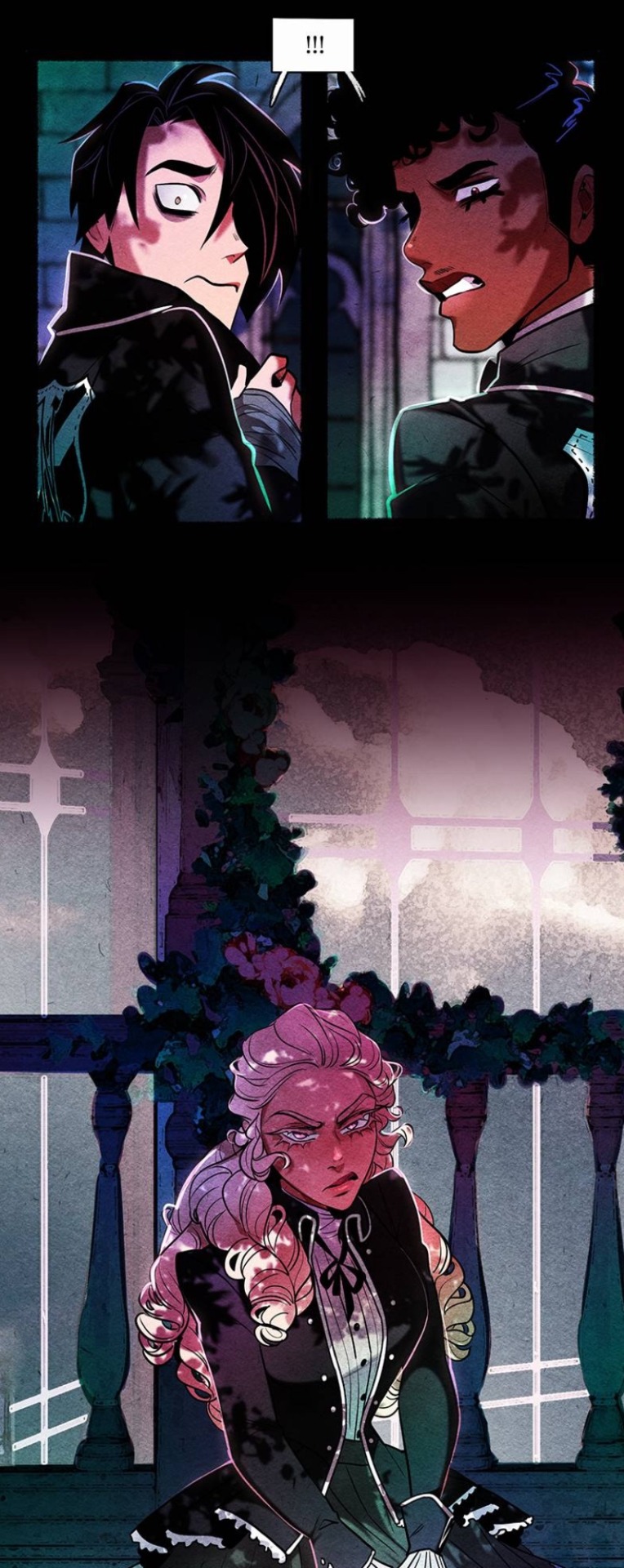
As Lenore’s love interest and closest companions respectively, there was always going to be a lot of interest in the dynamic between Annabel and the boys, and with Annabel’s involvement with putting Duke behind the wall and especially Duke and Pluto’s murder attempt, the dynamic between these three is going to be fascinating to see develop onwards. Any further interactions between them are going to be tense and any further conflict between them is going to be personal, and with Duke currently being in possession of Chekhov’s gun in letter form, a possible need for them to cooperate with each other might be coming up sooner than any of them could ever expect.
I bring all of this up because, with the information we have presently, Annabel might be able to add two more people to what might as well a growing collection of ‘I fear only a few people have truly ever understood me and i fucking hate the guys’, with Annabel sharing noticeable similarities with Duke and Pluto, as well as both potential and actual key factors in their respective deaths.
Duke and Annabel
Oh Duke and Annabel...from a comedic shove out of the way during the maze, to both of them being involved with a plan to kill the other in their first week at Nevermore. These two are so much fun to delve into, and their building similarities is going to make the inevitable need for them to work together so much sweeter. Before we get into the big one, here’s a few that I wanted to give a quick mention to:
Association with blue
In classic Romeo and Juliet fashion, Lenore and Annabel have clear colours associated with them and their family, with Annabel being commonly associated with blue, with some additional cold colours mixed in. Keeping this detail in mind, it was very interesting to see that two of the main colours in Duke’s spectre design were purple, a colour we’ve mainly seen him in through his dressing gown, and blue. Particularly with Duke’s spectre being revealed during the Cellar arc, having Duke and Annabel be connected with a shared colour can both highlight their equal importance to Lenore, as well as emphasise the split that resulted from the reveal that Annabel was the one that suggested Duke be the one that the acolytes trapped behind the wall.
Performers
Performance holds particularly significance to both of them, although in very different manners.
Duke made a career out of performing while he was alive, appearing to be a successful one to boot. While his status as a performer was only confirmed in episode 72, Duke’s passion for the stage was easy to see early on, from his dramatics, his mannerisms and his attempt to encourage Pluto in episode 17 to name a few examples. Since we only have one flashback for Duke at this moment, it is difficult to speculate the possible extent his profession affected his personal life while he was alive, but considering how he died…might be something we want to put a pin in for a later time.
While Annabel doesn’t share the same attachment to the literal stage, performance is something that runs deep throughout her life and her time at Nevermore. To use her own wording ‘everything in life is an act’.
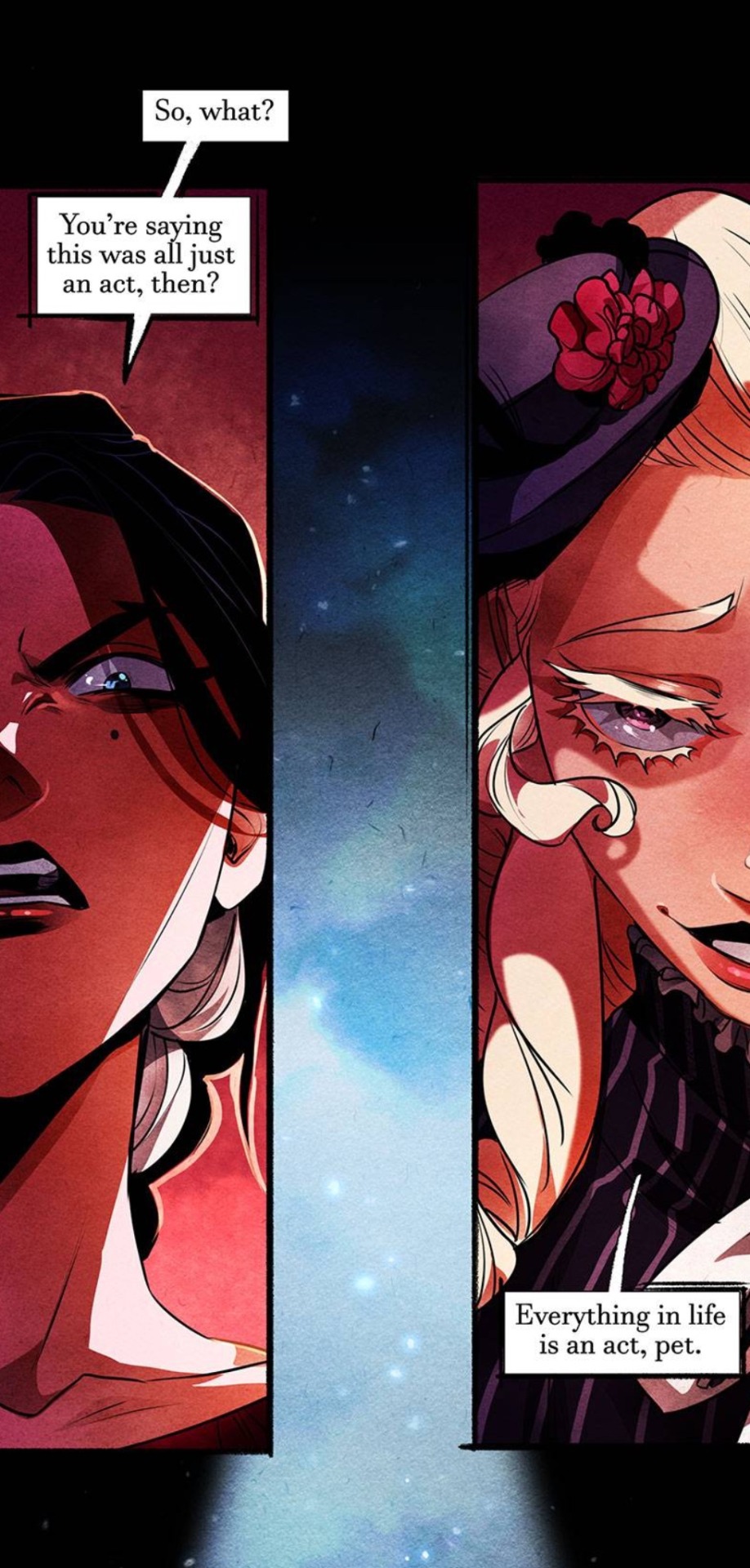
Annabel spent her whole life presenting herself as the perfect high society lady, having to consistently conceal any feelings that would be seen as improper in fear that she would be considered mad. This survival tactic continued to be a necessary tool to Annabel even after her death, with the academy being structured in such a manner to encourage conflict, deceit and violence among the students. Funny how Annabel has had to perform throughout her life and even needed to perform an encore after she’s six feet under, while the literal performer has had more opportunities to exist authentically.
Relationship with Lenore
Especially after the events of the Cellar arc, Lenore’s respective relationships with Annabel and Duke and what they have represented for Lenore’s desire to escape with the misfits and Annabel are ripe for picking when it comes to analysis. Keeping the focus on Annabel and Duke, they obviously both care deeply for Lenore, but it’s interesting to see their unknowingly shared sentiments when it comes to her:
-Both sharing the belief that Lenore is able to make anything possible (special note goes to my lovely friend likeastars for this point)


-Both encouraging Lenore not to place unnecessary guilt on herself


-Their reactions to Montresor's comment about Lenore's 'hysteria'

-Then of course, we have...


Betrayal
With those similarities sorted though, time to get into the big one: both Annabel’s and Duke’s deaths were the result of a betrayal.
In order for her manifest, Annabel was informed that she was murdered, being, as all Nevermore theorists know by heart at this point, ‘betrayed by the one who loved you above all else else’. Considering this description was given to her by the deans, and we as an audience are privy to the knowledge that the deans were making an active attempt to separate Lenore and Annabel by making Annabel manifest the way she did, it would be fair to take this wording for a hint of salt. For example, there's the possibility that the one who murdered Annabel and the one who betrayed her are two different people. However, considering that this description did make Annabel manifest, I believe the reliability of this description is acceptable for the time being.

In episode 83, we see that Duke died in a sabotaged water torture cell, with Duke desperately attempting to call for help when he discovered the top of the cell wouldn't move, only for his assistant to cover up Duke’s distress as a part of the act before turning around to smirk at Duke as the curtain went down.
This similarity between their deaths is intriguing by itself, but as BlacknedSoul pointed out in one of their wonderful posts, how they have reacted to these betrayals and how it has currently affected their relationships in Nevermore is really fascinating to compare.
Specific discussion around who shot Annabel is going to be saved for a later section in this post, but while the identity of Annabel’s murderer and what exactly happened are important for further understanding Annabel’s headspace while in the academy, the main factor at hand remains unchanged: Annabel was betrayed. A betrayal that led to her death. Annabel felt close enough to this person, trusted this person enough, that their actions were a betrayal to her, and with our current knowledge about Annabel while she was alive, the number of people that could possibly fit this description is already incredibly low as it is.
As we have clearly seen throughout season one, this betrayal has had a significant impact on Annabel’s willingness to trust anyone outside of Lenore, claiming that everyone would turn against them if they learnt about their scheme when Lenore questions why she couldn’t let Duke and Pluto in on their plans during episode 28. Though a level of caution is more than understandable given their current situation, Annabel’s mistrust appears to go beyond this. That betrayal is not a possibility but a certainty. While she has made some progress, with her desiring to have a genuine friendship with Prospero and everything that has currently happened in the Wild Hunt arc, Annabel’s fear of the possible consequences of letting anyone in on her and Lenore’s plan cannot be more clearly emphasised than it is in episode 98.
Lenore attempts to tell Duke the truth about her and Annabel as a final resort to prevent Duke and Pluto from killing Annabel, and Annabel looks on at her in absolute terror. Her life is currently being threatened, she is possibly moments away from falling to her death, and yet all her fear is focused on Lenore's attempt to confess.

She immediately does what she can to stop Lenore in her tracks, yelling out that ‘I won’t let you get away from this!’ before attempting to drag Duke over the railings with her. I don't think this can be emphasised enough, Annabel would literally prefer to fall to her death than have Lenore tell Duke to truth. She is so positive that there would be irrecoverable negative consequences to the misfits learning the truth that death would be a preferable option to her.
We don’t know the extent of Duke’s relationship with his assistant at the moment, nor his exact motivations for having Duke killed. Hell, we don’t even know their name. However, it appears Duke at the very least had a level of trust in him, considering that our unnamed man was in the position of Duke’s assistant in the first place. As per the role of an assistant, he would be entrusted with preparations for all of Duke's acts, acts that would put Duke's life at risk if something were to go wrong. Duke had entrusted his safety in his assistant’s hands, and what does his assistant do? He takes advantage of his position, and gets him killed.
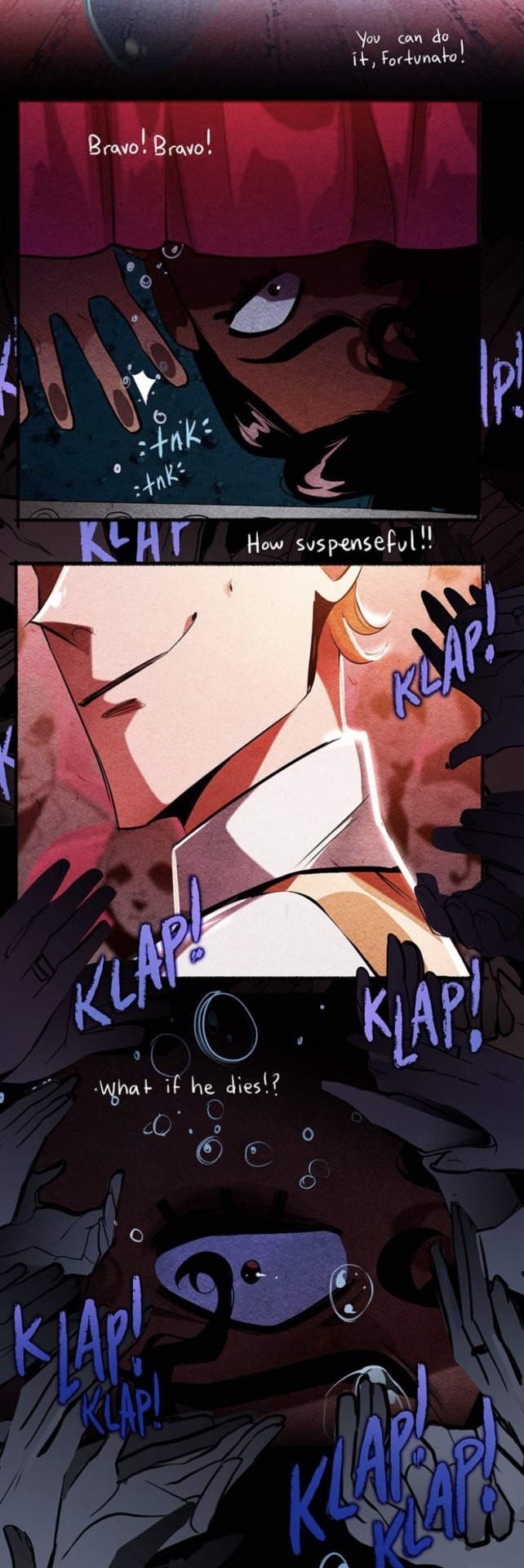
Despite what happened to him, it doesn’t appear that his death has negatively impacted his ability to trust others in the same manner it has for Annabel. We can see through his relationships with Lenore, Pluto and the rest of the misfits that he’s still quite open to forming connections and trusting relationships with others, far more than Annabel originally showed. Even after what happened between him and Lenore in episodes 98 and 99, something that occurred after he remembered how he died and could cause him to have more caution going forward, he still has complete faith in Lenore's abilities and is the first person to take part in the blood oath after Lenore. While he is comparingly more open to others than Annabel, that doesn’t mean that Duke is completely free of caution or is immediately welcoming when it comes to others. There are some small examples that illustrate this, such as him underestimating and being willing to ditch Pluto in the maze before Pluto showed he was much more capable than Lenore and Duke originally gave him credit for, as well as him being hesitant about Berenice and Eulalie first joining them when they went to look for a hideout. The main example here though this how he cautions Lenore about how she interacts with certain people in the academy. We see this most when referring to Annabel and Ada.
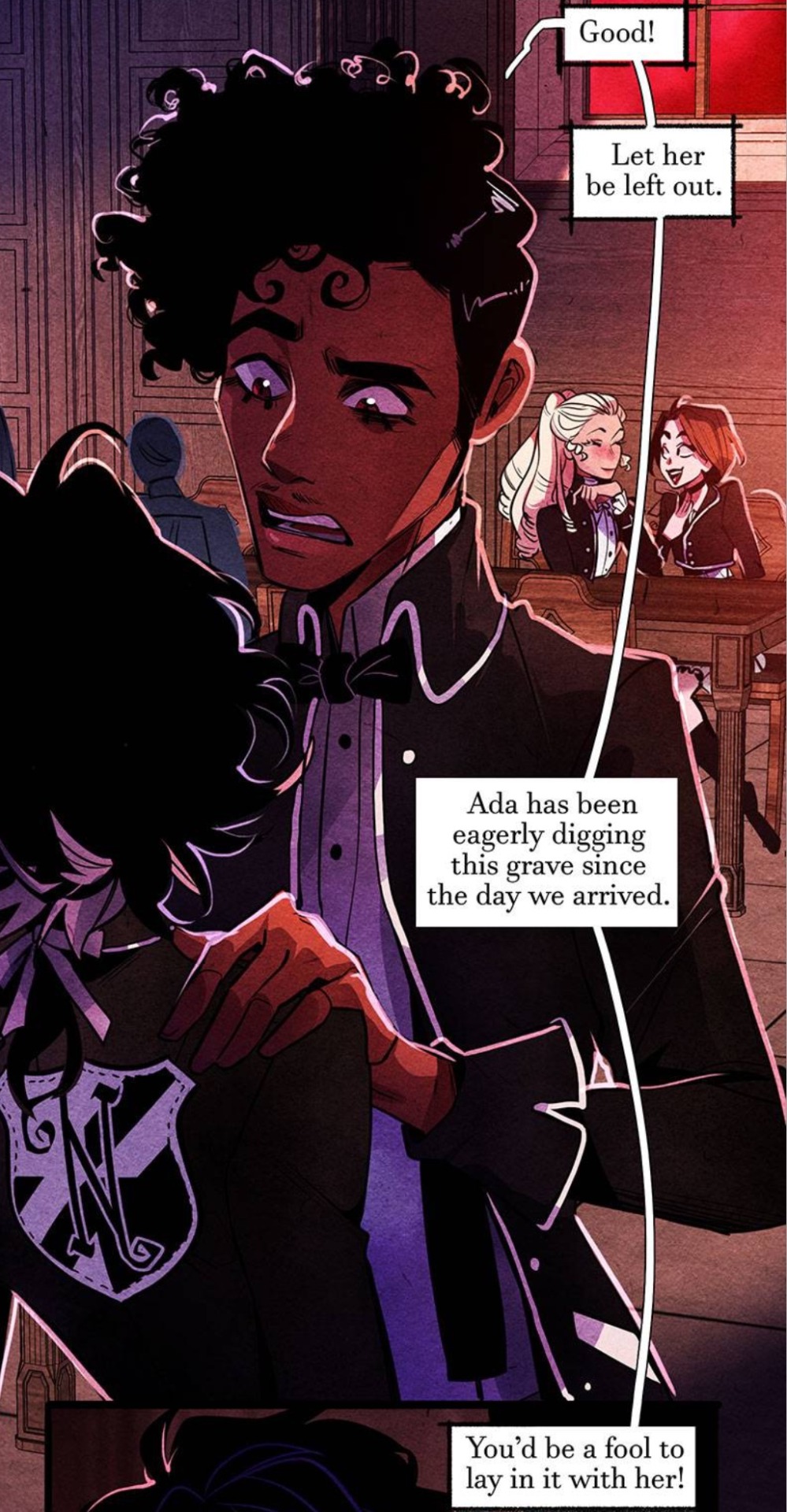
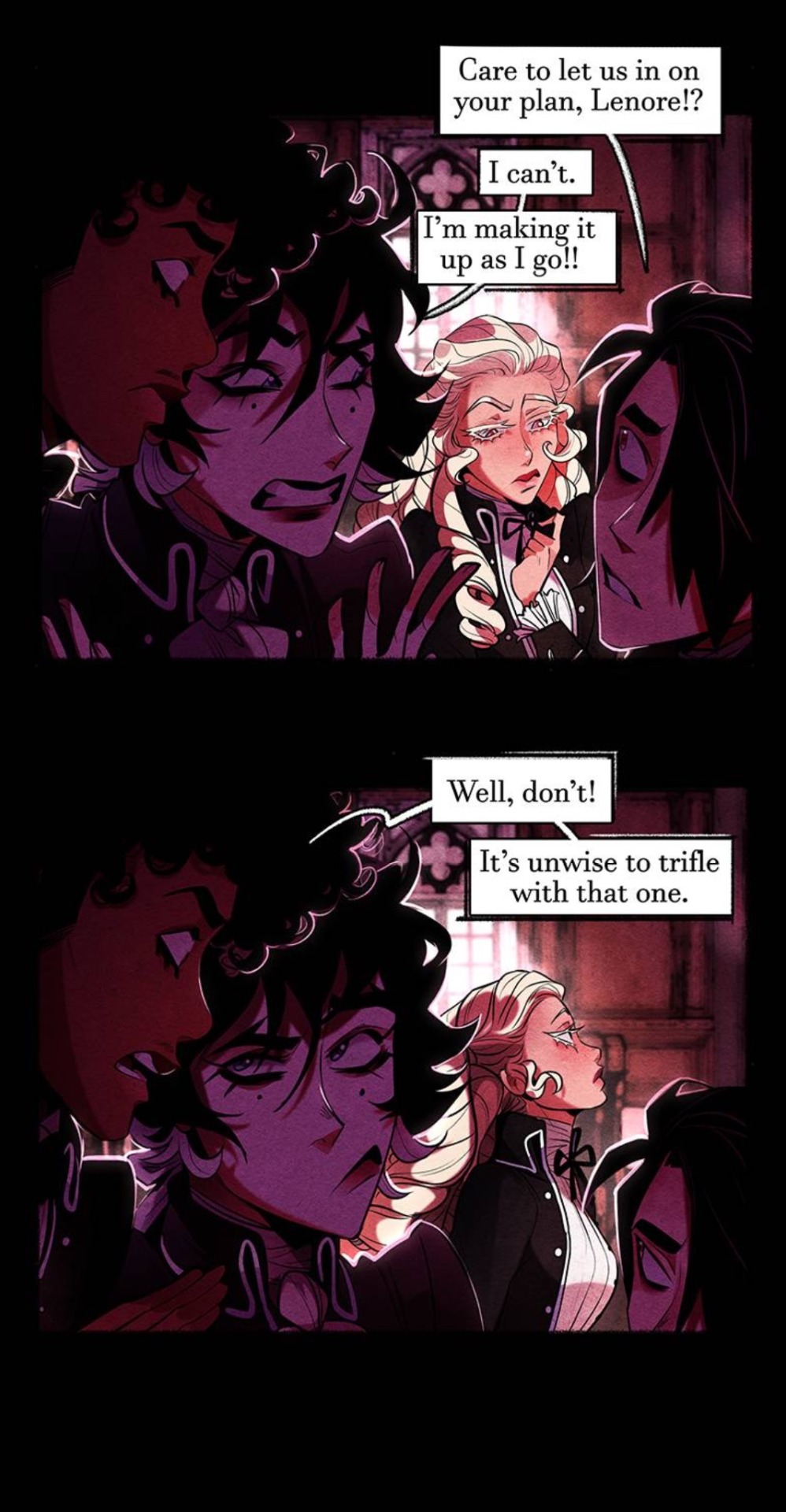
Through Duke's cautioning, episode 38 provide us with this important scene:
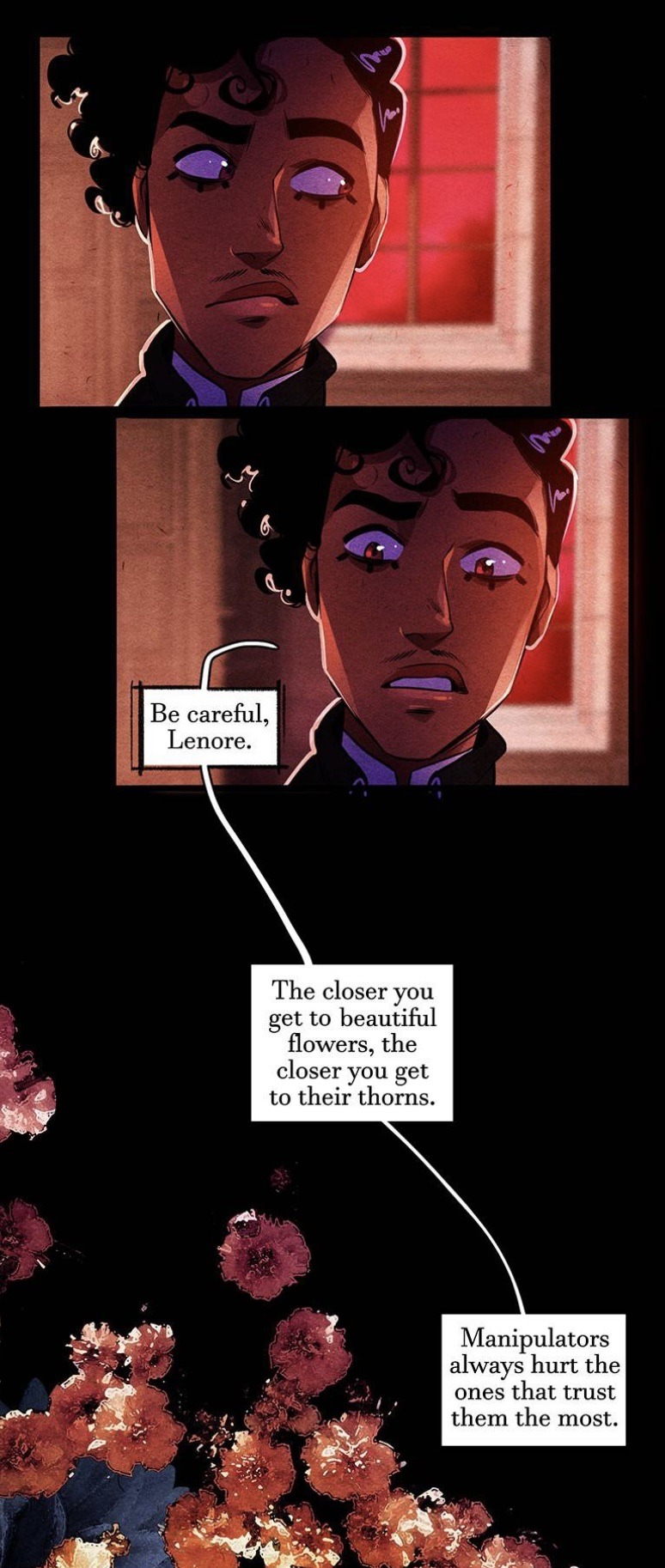
Duke appeared to end up the victim of a manipulator. He put his trust in the wrong person and it ended up getting him killed. While he might not remember the details of his death at the time of this scene, one of the last things he would want is for someone important to him to go through such an experience.
When Lenore's and Annabel's connection is revealed to the misfits, there is no way these experiences of betrayal aren't at least touched on, and with the topics discussed in the next section of these post, deep experiences of broken trusts are not going to stop there.
Pluto and Annabel
When it comes to Annabel and Pluto, while we have some fun surface level similarities, such as them both being English while coming from very different backgrounds and regions of England, there are two main similarities I want to dig into: the complexities in their relationships with their fathers and the current absence of their mothers.
Relationship With Their Fathers
We haven’t seen too much from both their fathers, with Ira, Annabel’s father, appearing in three episodes and Pluto’s father only appearing in one. Nevertheless, they have left us a good amount to chew on in very different ways.
When it comes to Annabel and her father, I don’t doubt that the two dearly love each other, with one of Annabel’s first concerns after Lenore presents her plan to elope and run away to her being what would become of her father, and Ira being shown to take great pride in his daughter. However, we can quickly see problems in their relationship start to present themselves when Ira reacts to Annabel’s panic attack. We’ve seen that Ira is someone that places great importance in appearances and maintaining advantageous relationships. Some prime example of this can be seen with him arranging a suitable husband for Annabel in case no one can beat her by the end of her third social season and the reasoning behind Annabel meeting with Lenore in the first placing being that Ira wished to know Lenore’s father better. With this starting to be established even before Ira made his first appearance, it should be of little surprise that Ira is quick to dismiss Annabel's panic attack, something that mind you, was brought on when Annabel learnt that someone she seemingly spent time with on a daily basis for six months died in a terrible house fire.

No matter what love Ira does have for Annabel, this concern surrounding appearances and what he believes is best for Annabel ultimately dismisses and neglects Annabel’s emotional needs. There can be discussions around how much of his reaction here is motivated by his concerns about preserving his image, in comparison with possible concerns about the consequences Annabel could face if someone else caught her in such a state, but the way Ira switches to calling Annabel by her name back to calling her ‘dearest’ once Annabel has ‘calmed’ herself is very telling.


When it comes to Pluto and his father…honestly I think I can just gesture in the direction of episode 83 and any point I could make about how fucked that relationship is will be well enough illustrated.
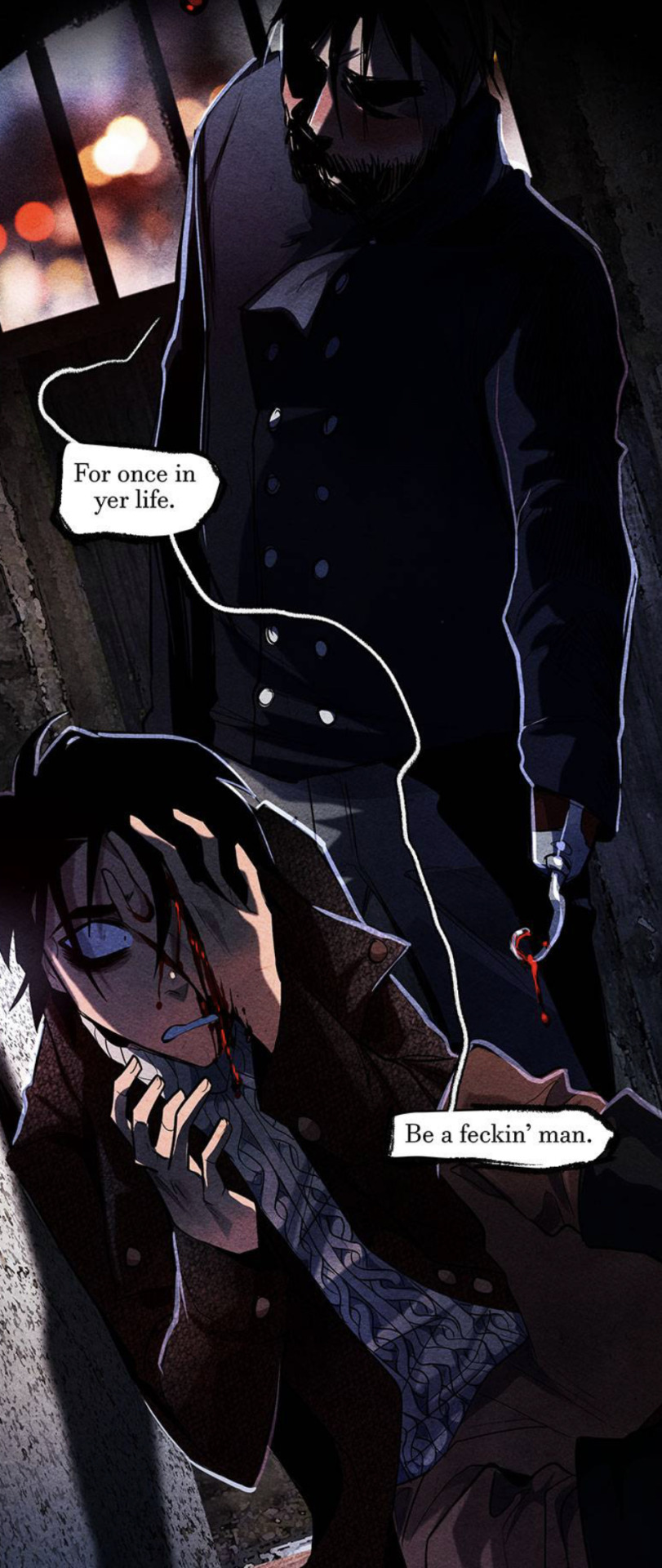
To further discuss though, there is the popular idea that Pluto’s father could have been a decent/good parent before WWI, with the aftermath sending him into a downward spiral and alcoholism, lining up with details provided to us about the narrator in ‘The Black Cat’, the short story Pluto is inspired from. I think this is very likely, especially when considering all the problems soldiers faced after returning from WWI. While this undoubtedly adds more possible tragic to Pluto and his father’s relationship, until we get confirmation of this idea, any further discussion on their relationship will be limited.
The real thing that gets me about their relationships with their fathers isn’t just the complicated nature of them, it’s how they can be tied to their deaths. Although we don’t have the complete details on Pluto’s and Annabel’s death as of yet, we do have enough to make some informed guesses, and it just so happens that with these informed guesses, their fathers are either inescapably tied to their deaths in the best case scenario, or are the ones who murdered them in the worst.
We currently have three main suspects for the person who shot Annabel: Lenore, Annabel’s childhood friend and Ira. Discussion and analysis of each of these suspects really deserves a dedicated post of its own, so I am going to keep this as brief as I can.
Despite the evidence mounted against her, I have a lot of doubts about it being Lenore. There are a number of details that don’t appear to completely fit if that was the case, with the prime one being that we know the deans were actively trying to separate Annabel and Lenore when they told Annabel how she died, and those memories greatly suggest Lenore was the one who shot Annabel. While those scenes in episode 91 would otherwise be a slam dunk, knowing about the Deans' manipulation highly suggest that either Lenore wasn't the one that shot Annabel, or the events that occurred are much more complicated than those panels would lead us to believe.
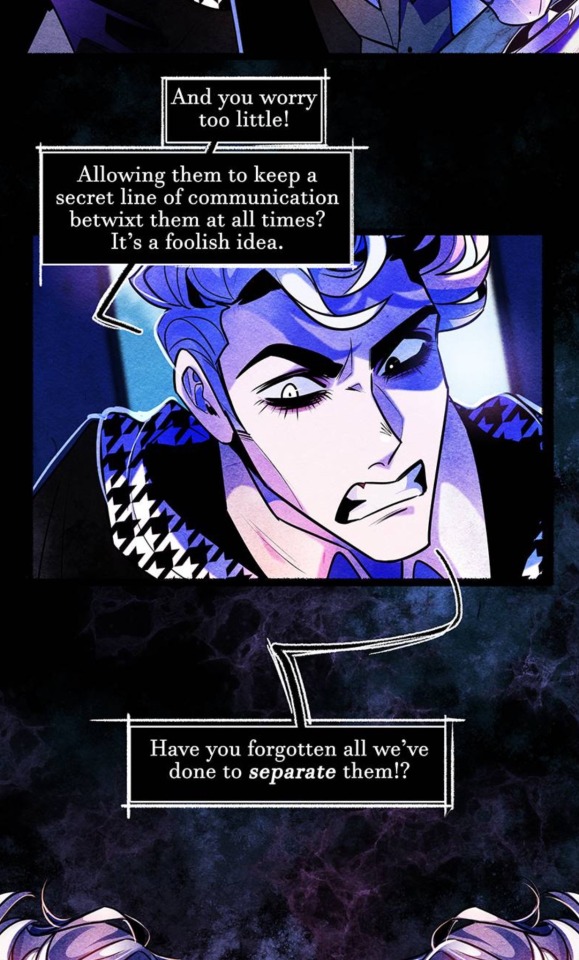
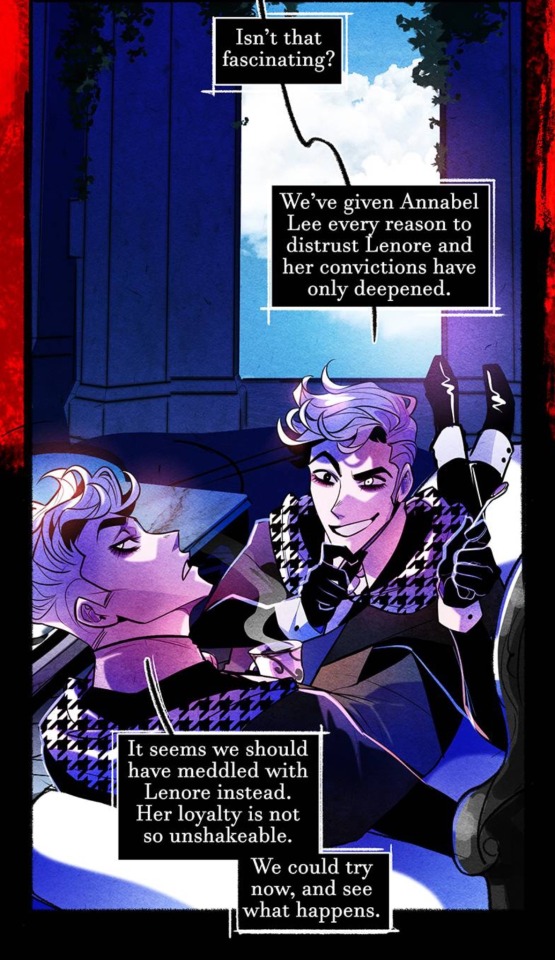
Next, we have Annabel’s childhood friend. While the details episode 42 provided about him definitely stood out enough for me to put a pin in him for the time being, the fact that we haven’t to met him yet and there currently being no further reference of him since episode 42, it’s harder to make a solid case about him being the one that shot Annabel. There’s also important consideration needed to whether Annabel would be close enough with/have enough trust in him that his actions would be considered a betrayal. Given the way she described him, it doesn’t seem likely at the moment.
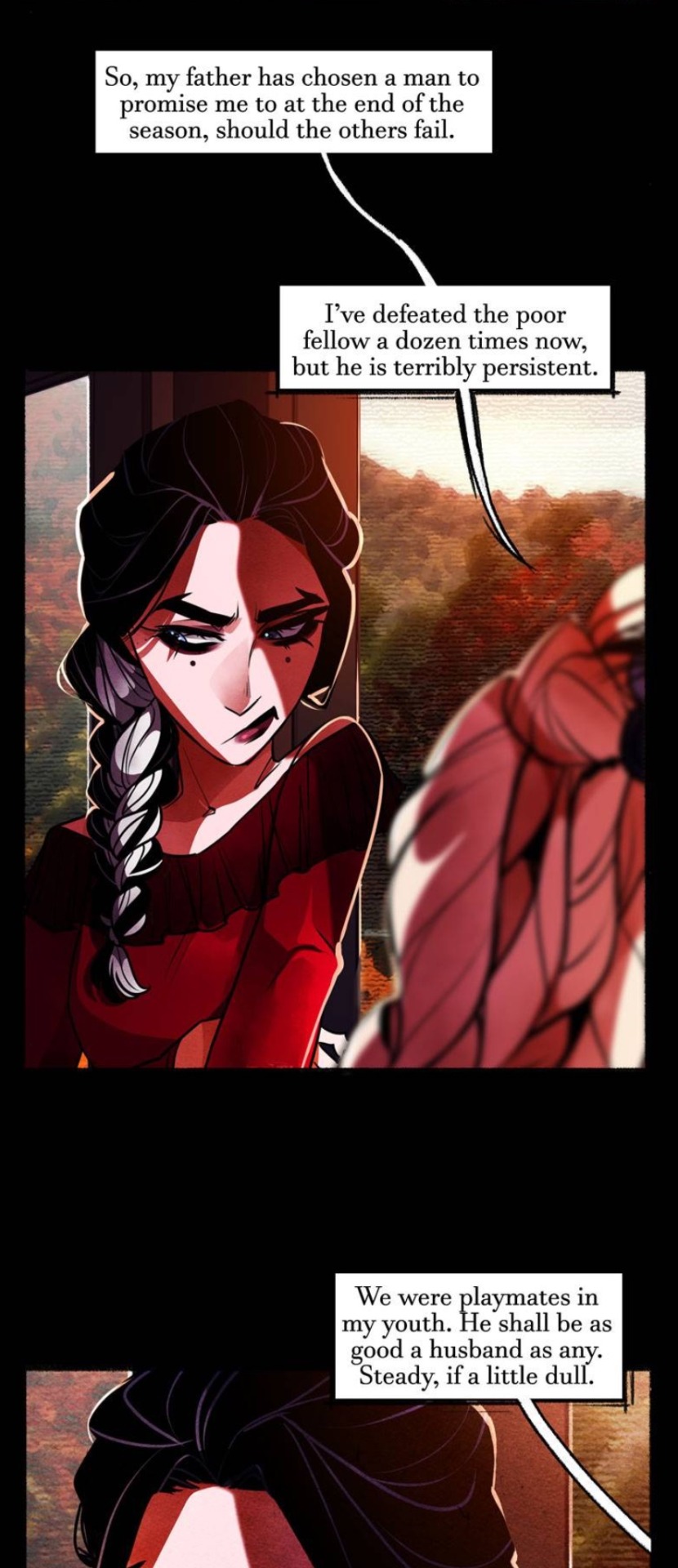
Finally, we have Ira. Given what we know about him, there is a strong case to be made against him. He could both believably fit the description of ‘the one that loved you above all else’, as well as have his actions be seen as a betrayal in Annabel’s eyes. Furthermore, with what we discussed about him before, it wouldn't be hard to put together a motivation for him. If/when White Raven’s plan was exposed, it isn't too hard to believe that he would shoot both of them in a desperate attempt to cover everything up and preserve his image. I could see him believing it as a kinder fate for Annabel than if she survived. Rather than being seen as a mad woman, institutionalised for trying to run off with a other woman, she could be seen as a poor victim, manipulated by a violent criminal and losing her life because of their wicked schemes (totally not covering up for the shame he would face if the public were to discover the truth, why would you even think that?). Even if Ira doesn’t end up as the one to pull the trigger, there is no way that he wasn’t at least involved in the events that led up to Annabel’s death. He can been seen chaperoning Annabel and 'Leo''s walk through the rose garden, he is friends with Lenore's father and him and Annabel were staying with the damn Vandernachts during the social season. There is no way that he wasn't involved with the discovery of White Raven's plan.
Pluto’s death is much easier to break down in comparison to Annabel. We know that Pluto felt relieved in his final moments and that, judging by how his spectre first manifested, he likely died by hanging.


Taking these factors in combination with the plot of ‘The Black Cat’ and what we currently know about Pluto’s home environment, there are two main theories on how Pluto died. Either Pluto committed suicide or his father murdered him. I don’t believe I have anything specific to further support one theory over the other, but I think I'm currently leaning towards his father killing him at the moment. Like with Ira though, given the…well everything about Pluto’s father, even if he didn’t murder him, there is no doubt in my mind that he was at least involved with what happened to Pluto.
Current Absence of Their Mothers
Currently, Annabel's and Pluto's mothers have yet to appear in the series. Now, you can fairly point this out as being a bit of a stretch. After all, the only characters so far to have both their parents shown to us are the Vandernacht siblings. Why should the absence of their mothers pose particular interest compared to the absence of Prospero's father for example? I have two reasons for this.
The first reason concerns how the absence of their mothers could have impacted the relationships Annabel and Pluto have with their fathers. While this hasn't been confirmed, the absence of their mothers clearly implies one thing: neither of them are in the picture anymore. If this is the case, that leaves us with the big question of 'why?'. I would place a bet on them both being dead, but we obviously don't have anything that could confirm or deny this at the moment. However, how and when their mothers left the picture would undoubtedly effect how the two's relationships with their fathers would have developed. For example, I would imagine there would be noticeable differences in Pluto and his father's relationship depending on if his mother died before, during or after WWI.
The second reason is that there are certain details about Annabel and Pluto, both in the webtoon and the work they were inspired from, that suggest that their mothers will have a decent amount of importance in their backstories.
Annabel's Mother
The current status of Annabel’s mother has to be one of the things I'm most intrigued about when it comes to the casts' backstories. While there isn’t a particular character from Annabel’s poem that we could draw from to speculate on her personality, the themes surrounding Annabel's story, and especially two key aspects of Annabel’s character, could both inform what Annabel’s mother was like and the impact she could have had on Annabel.
The first aspect I'm referring to is Annabel’s view on becoming a matriarch. As stated in episode 42, Annabel considered getting married and becoming a lady of the house death, that card games would be one of the only things that could stave off the building madness as she’s forced to go through the motions expected from such a role, with particular emphasis on needlepoint, needlepoint, the goddamned needlepoint. This stance naturally feels like something that could have been impacted by how Annabel saw her mother and how her mother acted, especially with Annabel having such a distinct distain for needlepoint. For example, it’s possible that Annabel’s mother was similar to what we've seen of Lucille, Lenore’s mother. Being lifeless around the house, constantly doing needlepoint to pass the time.
The second aspect I'm referring to is Annabel’s fear of going mad. We first delve into Annabel's fear during episode 66, where we received these important scenes:



We currently don’t know when this fear started to surface, however, in combination with her mother's absence and the knowledge that Annabel has been experiencing panic attacks since she was younger, there's the possibility that this fear is at least partially rooted in how her mother was treated, if she was seen as 'hysteric', and/or treatment and teaching from her mother when Annabel was experiencing a panic attack.
Until we learn anything about Annabel's mother, all we can really do is speculate, but with everything we current know about Annabel, there is the potential for some compelling and tragic reveals.
Pluto's Mother
With Pluto’s mother, she is particularly interesting since she actually has a character from Pluto’s story that she could be drawn from: the narrator’s wife.
In ‘The Black Cat’, the narrator states that he married early, expressing the following about his wife throughout the short story:
‘my wife, who at heart was not a little tinctured with superstition, made frequent allusion to the ancient popular notion, which regarded all black cats as witches in disguise. Not that she was ever serious upon this point’
‘my wife, who, as I have already said, possessed, in a high degree, that humanity of feeling which had once been my distinguishing trait, and the source of many of my simplest and purest pleasures’
‘[from the sudden, frequent, and ungovernable outbursts of a fury to which I now blindly abandoned myself], my uncomplaining wife, alas! was the most usual and the most patient of sufferers’
When the narrator attempts to kill the second black cat with an axe, his wife stops him, with the narrator killing her instead. The narrator then hides her body behind a brick wall in their cellar.
Now, do I think Pluto’s mother met the same fate as the narrator’s wife in the Black Cat? No. It currently seems very unlikely that she would have met the exact same fate for the following reasons:
1) The narrator’s wife dies after the first cat loses his eye and is killed, and from the limited amount we’ve seen, Pluto’s mother already appears to be out of the picture when Pluto loses his eye.
2) Aspects from this part of Pluto’s story have been used during the cellar arc. In ‘The Black Cat’, the narrator uses a crow bar to dislodge bricks from the wall in order to hide his wife’s body, and we see Pluto also use a crow bar while trying to dislodge the bricks that are keeping Duke trapped. Furthermore, when the police came to the house in search of the narrator’s missing wife, the second cat alerts both to the body’s location, with the police tearing down the wall to reveal that the second cat had been walled in with the body. This event can be linked to how Pluto was the one that helped Duke finally manifest, allowing him to escape the wall.
3) If Pluto’s mother was murdered by his father, who then hid her body behind a wall, I think this information would have been revealed to us during the Cellar arc. Unless Pluto never found out about it (which holy shit, I don’t think I would want him to find out if that ends up to be the case), you would think such a specific event like ‘a group of people trapping one of your closest friends behind a wall and leaving them to die’ would spark up some memories about what would hypothetically be one of the most traumatic experiences of your life.
Placing her current status to the side for now, the fact that Pluto's mother has a character she could be drawn definitely, at least in my eyes, increases the chances that she is going some make some appearance in the future. Furthermore, if we were to use descriptions of the narrator's wife to speculate what Pluto's mother was like, it lines up quite well with what we've seen from Pluto, with special mention being able to be given to his name.
During episode 103, when Eulalie asks Pluto about knowing the myths surrounding Charon, he replies with 'My name is "Pluto"'. It was interesting to see mentioned, since while we know on a meta level that Pluto gets his name from the short story he's inspired from, 'Pluto' is far from a name you would expect from an English man born to a working class family some time in the 1900s.
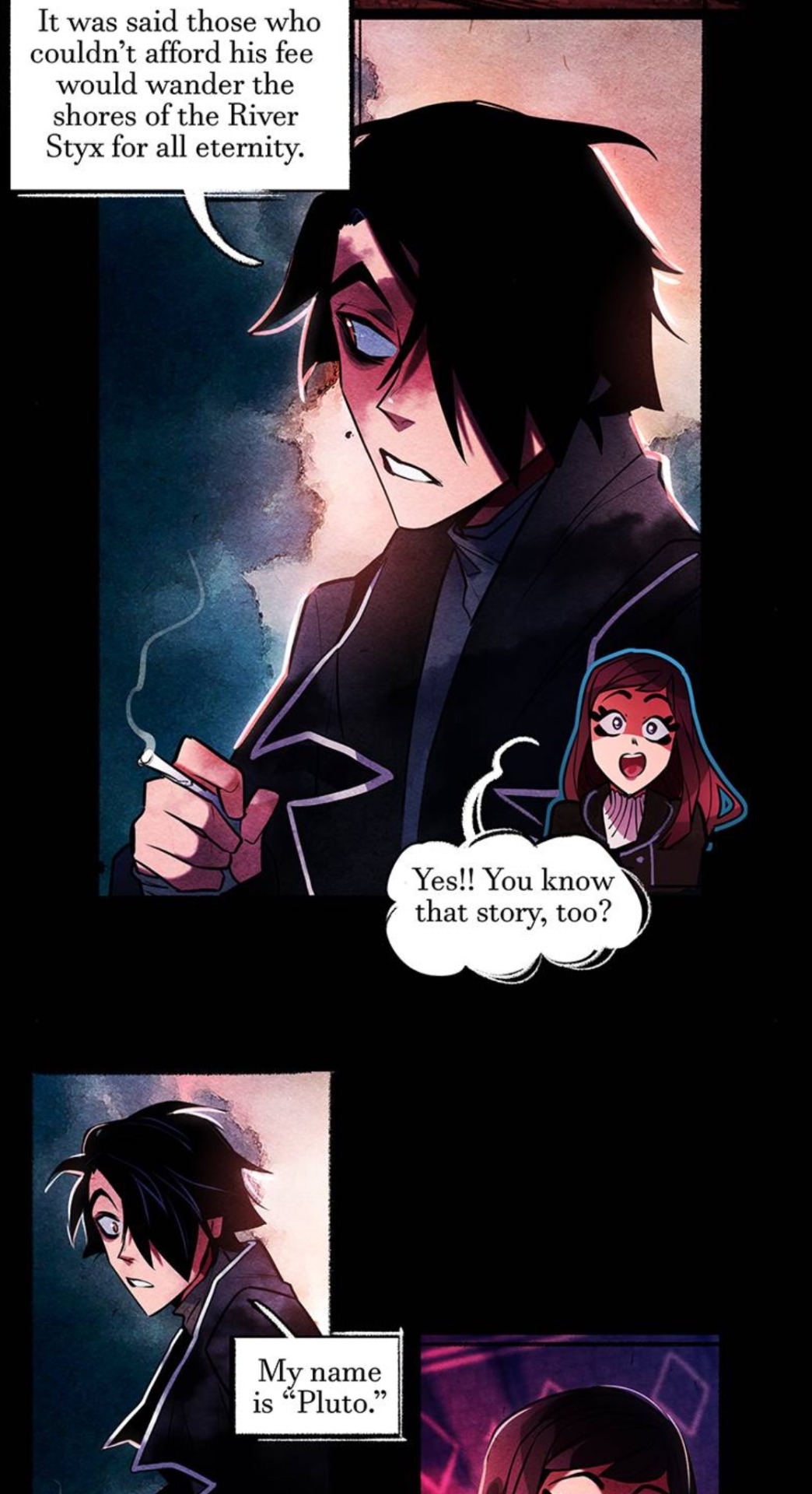
Both his name and knowledge on mythology could suggest that mythology was an interest of one or both of his parents, and with the narrator's wife being 'at heart was not a little tinctured with superstition', I could totally see Pluto getting his name from his mother.
What could this mean going forward?
So, with all of this covered, how could it potentially be used in the story going forward?
It's hard to say when Annabel will be interacting with either of the boys next, but with her swearing that they will regret trying to kill her, it isn't going to be pretty if Lenore isn't around. Most significantly though, we have the inevitable reveal to the misfits that Lenore and Annabel knew each other while they were alive and have been working together.
With a literal letter that details Lenore's and Annabel's relationship being in play, no matter if Lenore does or does not 'die' during this arc, there is no way that letter isn't getting read by someone, whether it is by Duke or by a completely different party.

Taking into account what we have discussed and current tension between Annabel's group and the misfits, there is no way this reveal is going to go smoothly for anyone, since just to quickly review, we have:
Annabel - has shown that she is willing to die if it means preventing her and Lenore's secret from being revealed.
Duke - died because his assistant betrayed him.
Pluto - got blinded in one of his eyes by someone he should have been able to trust.
Throw in the rest of the misfits and we have a time bomb of emotions waiting to explode, with many of them having experiences that could more than understandably make them react more poorly than they might have if they knew sooner.
If Lenore wishes to achieve the best possible outcome from this reveal, then I can only hope she realise that, especially after both Duke and Annabel nearly dying, keeping these secrets is only going to make things worse in the long run. The longer she hides her relationship with Annabel, the worse the misfits' reactions could potentially be, and if she doesn't explain to Annabel why she believes telling the misfits the truth is necessary, Annabel has shown she is willing to go to extreme lengths to protect their secret.
Even if the reveal goes as smooth as it could, actually working together is going to be a massive work in progress. We know that they have common ground that they could connect with, but when and how they would actually see that...only time will tell.
#nevermore#nevermore webtoon#webtoon nevermore#annabel lee whitlock#annabel lee nevermore#nevermore duke#duke nevermore#duke laurent#pluto nevermore#nevermore pluto
216 notes
·
View notes
Text
What are The Odds
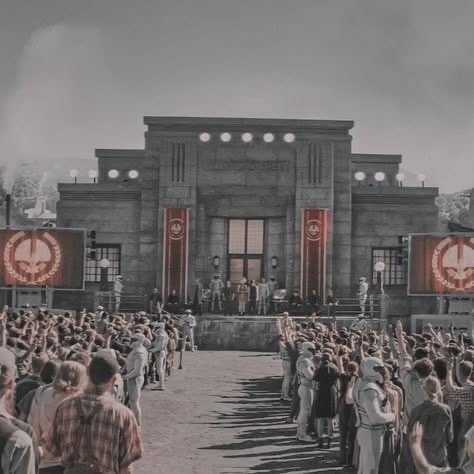
Pairing: plantonic (?) Haymitch x fem!reader, Burdock Everdeen x sister!reader, plantonic!Maysilee Donner x reader, Asterid March x reader
word count: 2.5k
Summary: Y/N was always stuck in the middle of good and bad luck. But what happens when maybe her luck finally runs out?
Warnings: MAJOR SPOILERS FOR SUNRISE ON THE REAPING!! violence, blood, death, cursings
What are the Odds: Next
A/N: THANK YOU GUYS for all the requests I’ve gotten! I promise I’m gonna get to them soon in the next few weeks. But I’m almost done with Sunrise on the Repaing (I have like 3/4 chapters left) and I needed to write. So pls feel free to send in any requests for SOTR <3 thank yall and enjoyyy
~~~~~~~~~~
The morning was crisp, the air biting at the exposed skin of your calves. Where the end of your dress ends, just a few inches until the tops of your boots begin.
As you step out of your small home in the Seam, the weight of the day’s significance hanging over you like a heavy fog. It was funny. How such a terrible day could look so beautiful.
As the morning sun started to shine down, the clouds above them almost too perfect. Too perfect for this terrible, terrible day. Because today was the Reaping.
Not just any Reaping though.
No.
Because that would be too easy. No, today is the Reaping for the 50th Hunger Games. The second ever Quarter Quell. And this year? The Capital was especially cruel as they announced just two weeks ago that twice the amount of tributes would be entered into the games.
Two boys and two girls from each district.
48 tributes.
And the whole district felt it. The weight that suffocated your small district. The sword that hung over your heads. It hard to ignore the tension in the streets of District 12, of the Seam.
The square will be filled with hopeful faces, but you can’t help but feel a cold knot in your stomach. Her hands tightening around the small paper bound package, not much bigger than a roll from the bakery.
Beside you, your twin brother, Burdock walks with his broad shoulders hunched against the growing warmth of the morning.
Both of your boots crunch against the dirt and gravel of the ground. The two of you silent as you head through the Seam and towards the center of town. Around you, lingering kids do the same.
But know Burdie is already gearing up to say something about your usual “distractions” today. You do it every year. The same packaging in your hands. A little hope in the dark time of July 4th.
“I saw you,” he says, nudging you with his elbow, his voice a low, teasing growl. His eyes narrowing down on you. “Making eyes at Haymitch again? You know better than that, Smalls,”
Smalls. You hated that he called you that. You had always been shorter than him, not by much. But you have.
You roll your eyes, shoving him lightly. “I wasn’t making eyes at him. You’re imagining things, Burdock. Why would I made eyes at Haymitch?” You ask as if it was the most ridiculous thing in the world. But your twin knew better.
“Oh, right, like you weren’t just staring at him across the Hobb yesterday.” His voice takes on an exaggerated, sarcastic tone. “What’s next, you going to hand him a love letter too? I’m sure Lenore Dove wouldn’t appreciate that,”
Lenor Dove. Your beautiful, and fierce cousin. The troublemaker. And Haymitch’s girl.
You huff, pursing your lips as you push the thoughts away. You weren’t angry with your cousin. You couldn’t blame her for falling for Haymitch. With his wit, the charm, everything about him was magnetic.
But you’re too stubborn and embarrassed to admit that, let alone let Burdock know that his teasing is getting to you. “I wasn’t staring. I was trading. He just so happened to be in that direction,” she said simply.
“Uh-huh.” He smirks, clearly enjoying the way his teasing is getting under your skin. “Well, maybe you should be careful, or he or Lenore Dove might think you’re a little too… interested.”
“Trust me, I’m not,” you mutter under your breath, though you’re unsure who you’re trying to convince. But the last thing you wanted to do was get between your cousin and her guy, who also is happens to be your brother’s best friend.
Burdock smirks and nudges you again. “You know better, Smalls. Besides, you can do better than Abernathy. So can Lenore Dove but god forbid we tell her that,”
“Yeah I’ll keep that in mind for when I see Asterid,” you added, a smirk growing on your own face as you bring up your brother’s crush. Well, more like unofficial girl. Though the whole district probably knew about their feelings for each other.
Though before he could retaliate with another word, the two of you approached the town square. The whole space has been transformed for the day’s festivities. Banners of Panem were hung. Large screens and other decorative items.
And then ahead of you, a figure emerges from the crowd—Haymitch. The air feels like it shifts when you see him, and for a second, everything else fades into the background. He walks towards you both, his face shadowed though his usual smug expression crossed his face, hands in his pockets.
You step forward, swallowing back the nerves swirling in your stomach, hand over the package. “Hey, Haymitch,” you say softly, your voice trying to sound like everything was normal. Like the odds weren’t completely stacked against all of you.
He raises an eyebrow, a hint of surprise flickering in his gaze when you hand him the gift. “What’s this?” he asks, his voice giving away the curiosity growing as he takes it from you.
“Happy birthday,” you say quickly, offering a shy smile. “I made it for you.”
His expression softens for a moment, though he’s quick to hide it behind his usual guarded look. He pulls the wrapping away with practiced hands, revealing a small leather bracelet, the stitches tight and neat. It’s simple, but it’s a piece of you—something you put effort into, something that’s yours to give.
You always tried to give him something handmade, or something he could use. With the hunting your family does, it gives a little extra coin. But this year with the Quarter Quell? Something in your stomach told you do to it. You just weren’t sure if it was for you, or him.
Burdock, standing a little behind you, rolls his eyes and mutters just loud enough for you to hear, “Gods, you’re so weird.”
Haymitch chuckles low, glancing at Burdock with a smirk. “She’s considerate, Burdie. That’s more than I can say for you.”
You quickly step back, feeling a flush creeping up your neck at Burdock’s teasing. “I have to go,” you say, your heart racing a little faster as the reaping draws closer. You don’t want to linger too long.
You look between the two boys, “I’ll see you guys afterward,” you say, giving your brother a hug and Haymitch a nod and smile before going and checking in. Afterwards, youtoward the girl’s side of the square, the weight of the moment sinking in as you join the others, trying to push away the nerves, the fear, the uncertainty.
As you reach your spot in the crowd, you find your group of friends. Asterid March, and Maysilee and Merrilee Donner.
you glance back one last time at Haymitch, who’s now inspecting the bracelet with a small smile. Burdock is standing beside him, muttering something that you can’t hear, but you catch the shake of Haymitch’s head, that wry grin on his face.
For a moment, everything feels normal. For a moment, it feels like nothing has changed. But you know that’s not true. Today, everything will change.
And as you stand there, heart thumping in your chest, you know that you’ll never forget this moment, even if it’s the last one that ever feels like it.
The square is packed, the air thick with a mix of anticipation and dread. The Capitol’s anthem blares from the loudspeakers, a stark contrast to the somber faces of the District 12 residents. The parents and families of all the children packed away in the square like animals. Watching and waiting to see which four unlucky children get picked.
Which four they have to mourn this year.
It wasn’t long before the mayor gave her speech. Replaying the clips and propaganda of the Dark Days, the games, and the past Hunger Games.
Drusilla Sickle, the Capitol-appointed escort, steps onto the stage not long after. Her presence is as flamboyant as ever, her face adorned with thumbtacks and tiny buzz saw blades, a grotesque display of Capitol fashion. She raises her hand as she begins, and you feel the knot in your stomach growing, playing with the ring on your right ring finger.
“Welcome, District 12!” Drusilla’s voice rings out, dripping with feigned enthusiasm. “Today, we gather for the 50th Hunger Games Reaping, a special Quarter Quell year,” she said adjusting her clothes again.
Drusilla continues, her tone mocking. “First, we shall select our female tributes.” She turns to the glass bowl beside her, swirling her hand inside before pulling out a slip of paper. Unfolding it, she announces, “Louella McCoy!”
You feel absolutely sick. You know Louella. A little girl from the Seam, just down the street. You had seen her grow up. Knew her family. You helped them as much as you could.
And as you watched, Louella steps forward, her face pale, eyes wide with fear. Though she doesn’t cry. She slowly joins Drusilla on the stage, standing stiffly beside her. And you try not to think
Drusilla’s hand delves back into the bowl, and she pulls out another slip. “And for the second female tribute. Y/N Everdeen!”
Your breath catches in your throat. Your name. Your heart races as you feel the weight of countless eyes upon you. Burdock’s gaze meets yours across the square, his face a mixture of concern and helplessness.
But you can’t bring yourself to look at him. Not when your blood has absolutely run cold. You were going to die. It was as simple as that. You were a hunter sure. But hunting animals were much different than hunting humans.
So incredibly different.
So how the hell were you supposed to do this? Against 47 other tributes? 12 of them being Careers.
Swallowing harshly, you finally snap out of your daze. You turn to your three friends give them biggest hug you could muster. And before you leave, your eyes land on Asterid, “Take care of my brother. Please,”
A final wish. You can’t imagine what your death would have on your twin. The guilt he may feel. Would he tell stories about you to his children? Would Asterid? Or would you be a missing piece of him that he never speaks about.
You hear people crying off to the side. Ma. It’s your parents. But still, you school your features the best you could while you force your legs to move, each step heavier than the last, until you stand beside Louella on the stage. And you don’t look anywhere in particular. Just staring off into the crowd of kids that you grew up around. Grew up with.
Drusilla gives a theatrical sigh, clearly enjoying the spectacle. “Now, for our male tributes.”
She draws a name. “Wyatt Callow!”
Wyatt, known for his quick wit and math skills. His family are gamblers. He was always the one picking out the odds of things. Especially when the games came around, he was particularly handy to his father and brothers.
Drusilla reaches into the glass bowl again, her fingers trembling slightly as she pulls out the second slip. “Woodbine Chance!”
Woodbine, a lanky boy with wild eyes, freezes. His gaze flickers toward the crowd, then back to Drusilla. He walks out to the aisle that leads to the stage and pauses for a moment.
Then without warning, he turns and bolts, pushing past Peacekeepers and scattering bystanders. A gasp ripples through the crowd.
“Stop him!” Drusilla shrieks, her voice high-pitched with panic, echoing into the microphone and bouncing off the walls of the square.
The Peacekeepers react swiftly, drawing their weapons. Woodbine’s desperate sprint is cut short as a single shot rings out from the rooftop of the justice building. The gunshot echoing through the square.
He collapses, lifeless, his defiance snuffed out in an instant. Woodbine is sprawled on the ground, a dark stain spreading beneath him, his wild eyes frozen open.
Then, everything erupts into chaos.
Someone screams—a raw, broken sound that cuts through the cold morning air. Peacekeepers move in a blur, shouting orders, raising their rifles. The crowd surges in confusion, some people shoving to get away, others frozen in place. A woman—Woodbine’s mother, maybe—cries out his name before a Peacekeeper tries shoves her back from the body of her boy.
You barely register any of it. Your body moves on instinct. Louella is beside you, trembling. Without thinking, you grab her and shove her down, pressing her against the stage, your own body curling over hers.
“Stay down,” you whisper, though your voice is swallowed by the rising panic.
A second shot rings out. Then another.
Something cracks against the stage beside you—wood splintering, or maybe stone. You squeeze your eyes shut, tightening your grip around Louella as she shakes beneath you. Her fingers clutch at your sleeve.
People are shouting, Peacekeepers are barking orders, but it all blurs together, muffled, distant. You focus on the rough wood beneath your hands, the sharp edges digging into your palms, the way Louella’s breath stutters beneath you.
Then, just as suddenly as it began, the chaos dulls. The shouting ebbs, the frantic movement slows.
You don’t move. You don’t lift your head.
A voice—sharp, commanding—cuts through the settling dust. “Get them up.”
Hands grab at you, hauling you off Louella. Your legs buckle as they drag you upright. The world tilts and sways, your vision swimming. Louella is being pulled to her feet beside you, her face pale, her eyes wide.
Drusilla Sickle stands at the podium again, though her elaborate Capitol mask of composure is cracked at the edges. Her mouth is tight, her hands trembling as she smooths down her ridiculous outfit.
“Well,” she says, voice brittle. “That was… unfortunate.”
The Peacekeepers have formed a barricade around the stage, their rifles held stiffly at their sides. In the square, bodies are still. Woodbine is gone—dragged away, erased.
Drusilla clears her throat, shaking out a new slip of paper with a forced smile. “Let’s try that again, shall we? Back to your places! We only have a few minuets!”
You have no idea what’s going on before the peacekeepers bring you and Louella and Wyatt back into the crowds. Right where you were.
Stunned, you realized what was happening. The beer making you do everything all over again. And for what? The camera? You try your best to seem like this was the first time. But it’s almost worse knowing what’s coming.
Louella is called again. Then you. Then Wyatt.
But it’s the name she reads next makes your stomach drop.
“Haymitch Abernathy.”
No. No no the second boy was already called. It was Woodbine. They couldn’t get replacement. This wasn’t fair. This wasn’t right. Not for Haymitch. Not for anyone who saw what really happened.
You wanted to scream. To shout. To cry that Haymitch didn’t deserve to be sent to the games like you, or Wyatt, or little Louella. But no sound came out. Like they completely stole your voice from you.
A silent murmur ripples through the crowd. You turn your head just in time to see Haymitch step forward, his usual smirk absent, his expression unreadable. Why had they called him? What did he do to get himself here? Or were the odds not in his favor.
He takes his place beside Wyatt Callow. The four of you—Louella, Haymitch, Wyatt, and yourself—stand before District 12, before the Capitol’s watching eyes.
Drusilla claps her hands together, as if that will erase the blood, the fear, the chaos.
“There we have it! Our tributes for the 50th Hunger Games!”
The anthem plays. The ceremony continues until it wraps up.
As if nothing happened at all.
As if you, Wyatt, Louella and Haymitch didn’t just have a promise of your deaths handed to you on a silver tray.
#haymitch abernathy x fem!reader#haymitch x fem!reader#haymitch abernathy x reader#haymitch abernathy imagine#haymitch x reader#thg haymitch#sunrise on the reaping#sotr imagine#sunrise on the reaping imagine#sotr#sotr spoilers#maysilee donner#asterid march#onlybeeewrites#x reader#open requests#onlybeeeanswers#requests open#x fem!reader#Everdeen!reader#burdock Everdeen#burdock Everdeen x sister!reader#wyatt callow#Wyatt Callow x reader#the hunger games imagine#the hunger games#tbosbas#tbh#hunger games requests#louella mccoy
159 notes
·
View notes
Text
Theory I absolutely despise: that Lucy Gray was pregnant with Snow's child. Nowhere in the text does it ever even allude to that. Said child also ends up being a grandparent of either Lenore Dove or Katniss.
Why can't we just accept that Lucy Gray is like the lost little girl in her name ballad? No one truly knows what happened to her and trying to make her the grandmother of significant characters just seems like it undermines the ambiguity of her ending.
#lucy gray baird#katniss everdeen#lenore dove#the hunger games#sunrise on the reaping#the ballad of songbirds and snakes
146 notes
·
View notes
Note
lowkey it’s a relief to know someone else who didn’t enjoy sunrise on the reaping because i really (sadly) disliked it but everytime i check the sotr tag it’s nothing but praise. it’s not entirely unwarranted because the general ideas and themes of this book ARE good they’re just… not done with the finesse and skill i’ve come to expect from suzanne collins.
but if you want to, i’d love to hear more of your thoughts on the book and its problems, especially re: haymitch’s characterization and the rebel subplot.
I think the crux of the issue of SOTR for me is that while it is a very interesting story with powerful concepts and messaging and themes, it doesn't quite feel like it was supposed to be Haymitch's story.
It feels a little too at odds at times from what we learn of Haymitch when Katniss and Peeta watch his games in Catching Fire. And before anyone tells me "that's the point!" or "you're falling for Capitol propaganda! We all fell for Capitol propaganda!!" the issue here is that no, I don't think we did, because when SC wrote about Haymitch's games in Catching Fire, I doubt she was doing it in mind of a Haymitch prequel more than a decade down the line that would recontextualize the entire story. I think what she wrote in Catching Fire in 2009 about Haymitch's games is exactly what it was supposed to be.
Then I think present day SC sat down to write sotr and decided she wanted to write a story about the long-standing power of propaganda. That rebellions are long burning and slow building and people will try and fail and try again. And so she adapted Haymitch's story to fit those themes.
And that's fine! It's fine that it's a bit of a retcon. A retcon doesn't have to be inherently bad and I did find SOTR entertaining overall but like I said, I don't think it fits so cleanly with the rest of the trilogy as others seem to think it does.
For instance, taking these scenes from Catching Fire:

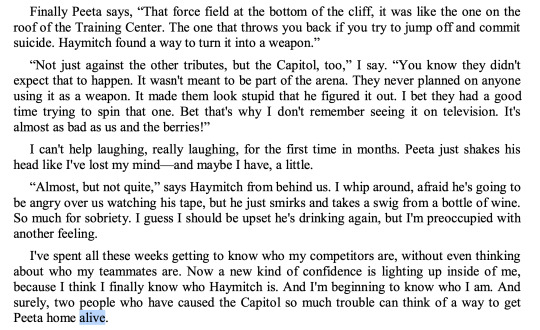
Given what know now from SOTR... well Katniss and Peeta's understandings and takeaways aren't quite right anymore, are they? "But what she doesn't know, and what he does, is that the ax will return." The implication here being that Haymitch planned that moment. But actually Katniss, that's wrong! Haymitch wasn't intentionally leading Silka to the cliff to use the forcefield against her, that was all a complete accident. And it's even worse because Katniss follows it up with: "I think I finally know who Haymitch is. And I'm beginning to know who I am." because now this is a scene where she's actually misreading Haymitch to a degree. Sure, her final conclusion is still ultimately correct: She and Haymitch are both people who have caused the Capitol trouble. And she's right in more ways now than she can know but she's also wrong about Haymitch in a significant way as well. (And it sucks because I've seen so many takes now joking about how Katniss is just sooooo bad at reading people but guys I think she was spot on here until Haymitch's story was altered lmao)
And then, just in a general sense, I think the pacing of SOTR is odd at times. I also think it occasionally suffers from a telling instead of showing, being a bit more heavy-handed in its messaging where the original trilogy wasn't. (Like when Haymitch abruptly called Maysilee his sister, just to make sure that we the readers understood their dynamic).
I also struggled to get into Haymitch's and Lenore Dove's romance because despite him waxing poetic about her every page, we only had a single chapter to establish their relationship and her character before they spend the rest of the book apart until the very end. And its a struggle for me because her presence takes up so much of the story and his thoughts, to a degree that I almost felt I wasn't reading about Haymitch anymore at times. On the flip side, I felt like his brother and mother didn't take up nearly enough of his headspace. Like Sid gets pretty much a single line in the epilogue in a sea of Lenore Dove paragraphs.
As for Haymitch's characterization... this is where we get far more into a personal preference territory, but I won't lie, I was and still am far more partial to a "resourceful Haymitch exploring the arena out of his own volition and outsmarting the gamemakers through his own ingenuity" instead of a "resourceful Haymitch acting out a rebel plan from others". I also am more interested in a Haymitch that lead Silka to the cliff to goad her into essentially killing herself than a Haymitch that ended up there seemingly just to escape her or buy time. And sure Haymitch was still intelligent in SOTR, but too often it felt like he was no longer the driving force in his own story. (which very well might have been the point? but if it was, then the execution of it didn't do much for me).
As for the rebel subplot: conceptually I thought it was interesting... but again, I thought the execution of it left a lot to be desired as it completely lost me the moment Haymitch wasn't insta-killed after blowing the water system. And I know we're given in-universe reasons for why he wasn't killed, but I simply can't buy into it. There were still plenty of tributes left, so it's not like the game makers and Snow had to keep him around. I don't think it would have mattered how popular Haymitch was at that point to the viewers. Haymitch also hadn't done anything yet that couldn't have been edited out so it's not like he had to be kept around by Snow and made into an example for other victors. And I think Haymitch had "suffered" enough in the games at that point for Snow to take him out with mutts. (ALSO - I couldn't help but feel that this rebel plot might have been better suited to an Ampert-centered story? Since Ampert seems to be driving so much of the crucial, behind the scenes work that is.)
But this is grossly long so to wrap this up: In my ideal world, this prequel would have gone one of two ways.
(1) A prequel with the themes and messaging and storylines of SOTR but centered on a different character (Ampert? A career, even? This could be an entirely different year of games with no Haymitch)
(2) A Haymitch prequel, but his games are way more in-line with what we were presented with in Catching Fire (still with a degree of propaganda), no beetee-rebel subplot, and we would've spent more time before the games in district 12, as well as after the games tracking his downward spiral.
#sorry this is horrifically long#but honest to god getting this message from you was a relief as well lmaoooo#again to be clear I dont think SOTR is horrible or anything like that I just didn't like what the story ended up being#on the flip side I also dont think its the BEST BOOK EVER and I think its the weakest entry in the hunger games line up#it's truly a mixed bag to me#anti sotr#sotr#the hunger games
144 notes
·
View notes
Text
WILL BYERS AND THE LOST LENORE
In literature, a "Lost Lenore" is a prominent character's deceased love interest. The trope gets its name from Edgar Allan Poe's poems "Lenore" and "The Raven". For a character to be considered a Lost Lenore, their death has to have great significance/relevance in the story and their absence has to have a profound effect on the character. Will off the gate fits that criteria, since his "death" and disappearance is what starts the entire story.
A Lost Lenore can be dead before the story begins, or they can die very early on. However, they don't have to actually be dead, but rather an equivalent thereof, eg. genuinely believed to be dead
"[...] Because everyone thought he was dead?" "Yeah, I mean...we had a funeral for him and everything",
or even lost in a different dimension (Sound familiar?)
The character who lost Lenore can have different love interests afterwards (!!). However, the grief they experienced for Lenore must be clear. The subsequent love interests can never ACTUALLY replace Lenore though, which may lead to a love triangle.
Sometimes (like here), Lenore turns out to not be dead after all, or dead for reasons by means other than previously believed.
In Poe's "Lenore", which takes place during Lenore's funeral, one of the mourners asks her husband why he isn't weeping and if he has realized she isn't coming back. Her husband in response calls the mourners "wretches", who didn't actually care about her and were even happy when she died.


It's also important to note that there are multiple mentions of Lenore dying "too young", and her youth in general, emphasized by the "life upon her yellow hair", a youth that's greatly emphasized in Will's death/during his disappearance as well, since he was only 12.
In this trope, characters can encounter another living character who strongly resembles/reminds them of the Lost Lenore. A romantic relationship might even develop.
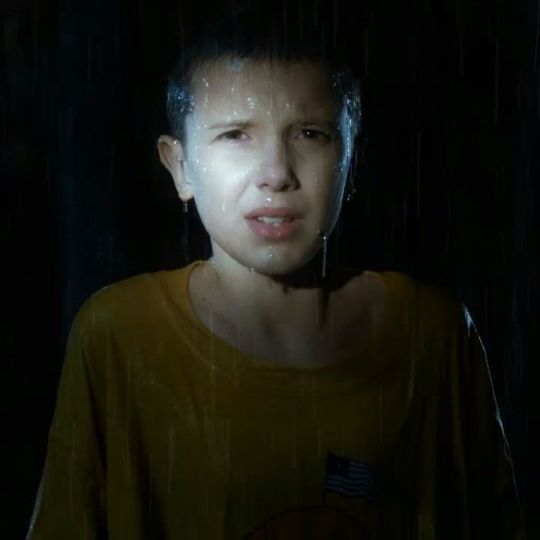
That one is especially crazy to me, given all the twin imagery between Will and El, even going as far as to make them actual siblings in s4, and El actually being mistaken for Will in s1.
Also, and this might be reaching, but Will seems to be "disappearing" throughout the course of the entire show. Besides his actual disappearance and death in s1, he disappears once more when he gets completely taken over by the mindflayer, and (more meta) during the entirety of the series, his clothes/color pallete are constantly blending in with the background and his surroundings (see his tan/beige outfit in the middle of the new mexico desert). Even when he's not actually dead, he's metaphorically still lost.
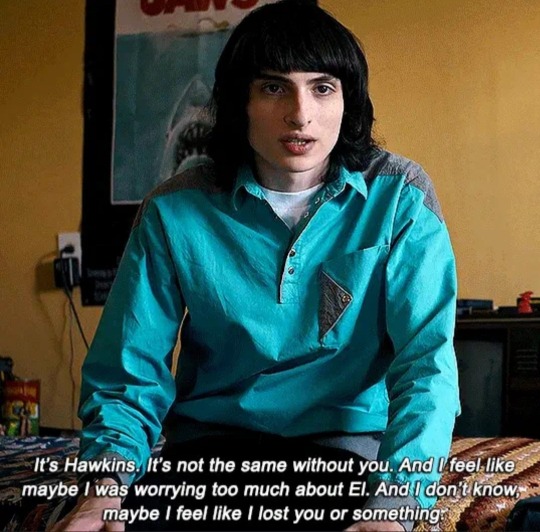
In "The Raven", Lenore is physically absent and yet her presence looms, haunting the narrative (cough, the entirety of s1, cough). The narrator desperately tries to connect with Lenore though the raven, mirroring the human struggle of reconciling with the past and dealing with the inevitability of change.
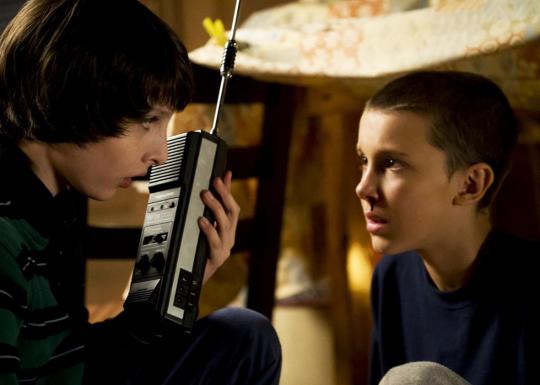
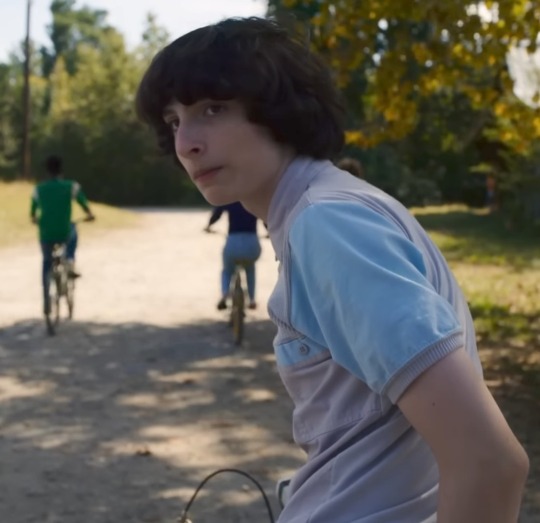
"And I guess, if I'm really being honest, that's what scares me. I don't want things to change."
Oh, and what was the name of the town the Byers moved to again?

BUT WAIT, THERE'S MORE.
In s1, El is giving the alias Eleanor/Elenore by the boys, who tell mr. Clarke she's Mike's (second) cousin.
This made me think of a short story by Poe, called "Eleonora". It's narrated by a man who falls in love with his cousin Eleonora, with whom he lives in an isolated valley. When they become aware of their love for each other, new flowers bloom in the surrounding forests. However, after they declare their love, Eleonora falls ill. On her deathbed, the narrator promises her he will never love anyone else. She then reassures him she will send him signals so that he knows she's still with him, even in death.

He honors his vow for many years and stays in the valley, but the place itself seems to change, with flowers and grasses withering and disappearing.
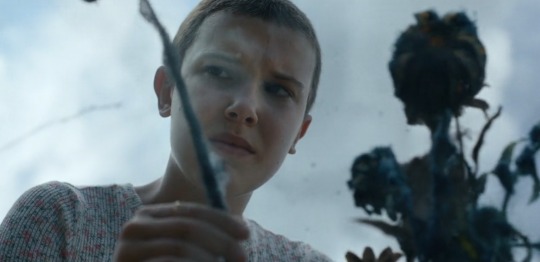
He leaves the valley, pained by the memories and at first, he still senses Eleonora around him at night.
"Sometimes I feel like... I can still see her. Like, she's still around, but...she never is"
Suddenly her presence is gone and he meets a woman, Ermengarde. He falls in love with her and they marry, breaking his vow.
This imo, is very reminiscent of their storyline in s2, since El stopped visiting Mike (her presence gone) around the same time Will's possession storyline started, AKA when Mike's undivited attention was on him.
The story ends with the narrator hearing the voice of Eleonora one night, forgiving him for breaking his promise and wishing him happiness with Ermengarde, for whom the narrator had previously justified his feelings were more "authentic".
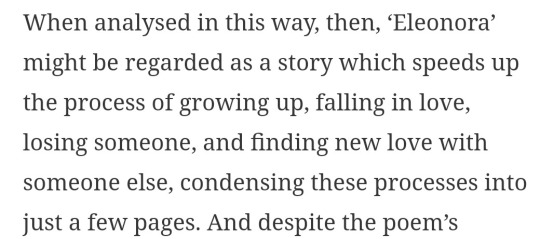
Anyway I'm going a bit crazy over this lmao
Was inspired by some posts from @love-byers and @nattyonebard :)
#seriously though this kind of has me in a chokehold#lenoregate#the lost lenore#byler#byler tumblr#will byers#stranger things#mike wheeler#byler theory#byler analysis#byler endgame
107 notes
·
View notes
Text
I've seen a few people try to guess what Lenore's nickname for Annabel was in life, and I always enjoy reading those, so I thought I'd make my own.
In the stories I've written for them, I've been using "Ann" because it moves nicely with the flow of dialogue and I like the way it sounds, but I actually think it's "Annie" for a few reasons.
Firstly and most obviously, there's an EAP poem titled "For Annie". But going deeper into that poem, there are so many similarities to White Raven's themes. For one, the narrator of the poem spends a significant amount of lines discussing lying in a bed, no one wanting to look at them, and seeing Life as a plague. I think we can all see the parallel there. They go further and talk about how Annie saved them from this terrible, hopeless feeling, and gave them life even as others still saw them the same way. These are very common themes to Poe's writing, and even to the gothic genre in general, but the similarities. They haunt me. And I hope they haunt you a lil now too. But lastly, in case they don't yet, here is one more White Raven theme mentioned in the poem - flowers. Rosemary, rue, and pansies (the flowers of Annie) outweigh the sent of myrtles and roses ("old agitations") and allow the narrator to let go of past grievances, "forgetting, or never regretting". Annabel's flowers are peonies, sure, but several types of flowers - and even just flowers no matter the kind - have been used throughout the story to depict different stages of Lenore's mental health and the ways they perceive each other and themselves during the course of their evolving relationship.
I know this is very unrelated to the current episodes, but it's been on my mind a lot, so here you go. :)
67 notes
·
View notes
Text
what’s really getting me is haymitch still sees lenore dove, even after everything. he still sees her, he still talks to her, and she talks to him. he dreams of her. in his mind she’s aged alongside him, with fine lines and graying hair. he still yearns to find her in the good place when his life is over.
and there’s something so significant about him saying “I love you like all-fire, too” instead of just “You, too” in the final passage…. oh you deserve all the peace in the world haymitch
#sunrise on the reaping spoilers#thg sotr#sotr spoilers#i have a tummy ache about them#sunrise on the reaping
65 notes
·
View notes
Text
the targeting of the the tank, aka the brain, and ignoring the generator is a metaphor for how direct, unsupported acts of rebellion are doomed to fail.
since my essay on Sejanus's and Lenore Dove's impulsive rebellions, the failed attempt of destroying the arena has been stuck in my mind. mechanically, beetee's plan should have worked. He knows about the generator, but he believes that without the brain, the power has no where to go, and it won't be an issue, as the body, the arena, cannot operate without the central organ:
But the brain can’t operate unless other parts of the body are sound. Like this building tonight. When the electricity is cut off, the place goes dead.
But we see that the generator does cause issues. Targeting the central entity does not harm the Games in the expected way. After Haymitch blows up the tank, the arena begins to shudder, even falling apart in some places, but the Games ultimately continue.
In examining David Hume's essay Of the First Principles of Government, he emphasizes the governing body derives its power from public opinion:
When we enquire by what means this wonder is effected, we shall find, that, as Force is always on the side of the governed, the governors have nothing to support them but opinion. It is therefore, on opinion only that government is founded; and this maxim extends to the most despotic and most military governments, as well as to the most free and most popular.
Under Hume's argument, the Capitol is untouchable until the opinion of the governed, the districts, is on the side of rebellion. While the districts are in a state of unrest due to the sheer about of reaped children, as we learn later in the novel, the rebellion has not organized under a central idea or figure. They have not harnessed the power of the unrest and converted it to the side of rebellion. The rebellion is a stone's throw away, but too far out of reach:
Nestled among them sits a gigantic machine, purring like a contented cat. The generator. Only a stone’s throw away, but it might as well be on the moon.
The opinion of Panem still lies in the idea the Games are for the best, as Effie says, or inevitable, as Haymitch and the constant themes of implicit submission relay. In terms of public opinion, submitting to the atrocity of the Games is the same thing as supporting them. Both attitudes propagate the power of the government over the people.
A direct attack on the Capitol (the brain, the tank) will not satisfy the requirement of destroying the thing that generates the power of the government.
Well, the energy supply was never our target: The brain was. Though it was damaged, enough of it’s still functioning to entertain the audience.
It is only upon public opinion that the games can survive. If Panem's opinion turned against the Games, as it had been starting to wane before the 10th Games, the Hunger Games would not have the support they would need to continue. There would be no generator.
At this point, the generator’s also essential to continuing the Games, but the only way to reach that would be to break out of this place.
The power to have a significant, lasting rebellion, is generated in the hands of the people, and during SOTR, it is tucked neatly beneath an impenetrable force field.
#i knew there had to be a deeper meaning behind the terms brain and body#and esp the term generator#the hunger games#thg#sunrise on the reaping#sotr#haymitch abernathy#mockingjay#beetee latier#thg analysis#thg meta
65 notes
·
View notes
Text


I'm still thinking about these two paragraphs, wondering, whether Suzanne Collins is aware of the implication here. That these nameless Seam girls are simply too naive, too stupid than to know better, and they fall for their opressors, chickens dating Colonal Sanders, if you will... But Lenore Dove? The only way she could get intimate with Peacekeeprs is by force, to humiliate her, to break her.
And I'm not saying that Haymitch is wrong to be afraid of Lenore Dove getting assaulted, while under arrest, but
those nameless, unimportant girls were never graced the benefit of the doubt about their willingness to get with literal armed hand of the regime
which gets even more offensive, when you realize that Haymitch's fear implies that such occurances already happened in the past. Even now, when thinking about risks of getting arrested, most people don't think about the potential rape from police officers, simply because these cases are making less headlines, so for Haymitch to even think about that, he must be aware that it is a possibility
And it doesn't even make me dislike how Lenore Dove is written more, because sigh of course the perfect lost Lenore is the victim of Madonna-whore complex.
If anything, it just makes me sad for all those girls with no names and no significance for the story, existing merely for a world building detail, which isn't bad on itself because such things happen (although mostly in Catholic Church, iykyk). Because if Haymitch thinks this way, how many others do as well? And for how many of these girls this simply isn't true that they were the ones to get smitten? How many said 'no' before the child was conceived?
This is merely a throw-away line, but it creates such a grim reality, in which these girls are not only helpless against the system that will protect their rapists, but also against their own community, who is more eager to label them as class traitors rather than victims. And sure, such things happened in history, but from both Katniss and Haymitch's pov we have this narration that people in districts know their enemy, that they're sceptical about what Capitol tries to sell them - so wouldn't the natural assumption be that a Seam girl, your neighbour, your classmate, a girl you know since she was a child, with whom you stood hand in hand through each Reaping, didn't got smitten with one of the armed men, who made sure none of you escape? That she was simply unable to defend herself when he decided that she's just one more thing he can take for himself because nothing in districts really belongs to districts?
And what's even more offensive to me, in a way, is that this is the only mention of extramarital intercourse in the whole series, which isn't also a forced sex work (or implied one, re @ Lucy Gray Baird). Like I said many times already, yeah, this is a series targeted at middle schoolers, I don't expect Suzanne Collins to admit that teenagers in districts have sex or whatever, but Jesus fucking Christ, this is the admition that people in her series have sex before marriage willingly? Really?
Again, I know I'm thinking about it wayyyy more than Suzanne Collins ever did, but bruh. Bruh.
#anti sotr#anti suzanne collins#can you guys tell i wrote my ba thesis about sexism#or do i have to walk in again#sunrise of the reaping
58 notes
·
View notes
Text
Nevermore Theory
Alright, I’m finally going to go out and post my own Nevermore theory, now that the comic has returned. A lot of the things I wanna talk about are already pretty popular subjects of theory in the fandom (“Who killed Annabel Lee?”), but I wanna tackle a few points I rarely see addressed.
I am going to put all of this under the general thesis of: “The deans don’t lie, but they deliberately mislead.”
Unscientifically speaking, every time the deans come out and tell us something, my bullshit senses go off big time! I want to focus on two main claims they have made, that influence how we view the story in a major way: Who killed Annabel Lee and What’s up with the new life?
1. Who killed Annabel Lee?
I feel it necessary to type out the exact wording the deans use, because it is often misread or misremembered. Don’t worry, that is by design!
“Betrayed by the one who loved you above all else.”
“Who loved YOU” and not “Who YOU loved”. I think that distinction is very important and easily missed. Especially since the expressed purpose of the deans in that scene is to drive a wedge in Annabel and Lenore’s relationship. Now, you could easily argue, that this still points to Lenore. The two of them are the No. 1 relationship to root for after all. But this is where the second part of the statement comes in: “above all else”. In my opinion, Lenore has already demonstrated that she can and will put other things above Annabel Lee (divorce arc anyone?). I don’t doubt, that Lenore and Annabel were a lot closer when they were still alive, but I also don’t doubt that this is one of Lenore’s core personality traits. The other thing I want to point out is, that you don’t have control about “who loves you the most.” You would hope it is your significant other, or maybe a good friend or even a parent. But you can’t really know that. Which brings me to another part of this theory: “Well, who did it then?”
Short answer, I don’t know, but I have a hunch.
First off, I kind of dismissed her father as a suspect by personal preference. We don’t have a lot to go off here, but I think he is too dismissive of her to fit the description. I’m particularly thinking about the scene where he gushed to “Leo” about boats, rather than playing wingman for his daughter.
My main suspect is instead Annabel’s nameless suitor. We don’t know much about him, other than he has already challenged Annabel multiple times (showing dedication). She says: “I’ve defeated the poor fellow a dozen times now, but he is terribly persistent.” Her father has promised him, that at the end of the season he can marry Annabel if she hasn’t found a husband by then. I can imagine how angry he might be, if that plan doesn’t shake out and she gets engaged to another man, right before he finally gets his wish.
Coming back to the deans, I think we can find that they very deliberately chose their words to lead to a false conclusion. Annabel might know who she loves above all else, but she can’t know who would love her in that way. She is left to make assumptions and we along with her. The words “love” and “betrayal” point to someone close to her, and since she died on her wedding day we are lead to a most likely suspect. That’s how we skip over the precise details of the claim. And the deans have never even uttered a lie.
2. What about the new life?
“If you survive these exams you’ll get a chance at a new life.”
That’s the first claim we get from the deans about the prize waiting at the end of nevermore academy. And it is frustratingly vague. Luckily, we already know the first trick they pulled with that one, so we can take that as a guide to analyse it further. This short little claim lets you read almost anything you want into it. It doesn’t specify how many students are allowed to claim the price or, even more importantly, how tose exams will be designed. By leaving out information the automatic assumption is: “Everyone who passes the exams, gets a chance at a new life.” However if these exams ever are designed to only allow a single winner, then only one person would be able to clear the win condition. Nobody would think about any of this, when presented with such an opportunity. It’s why all hell breaks loose when they finally reveal the reward will only be granted to one student. Speaking of which, their wording changes a bit in that reveal.
“…and to the one lucky student amongst you who will be born again.”
Born again is new. It implies at least to some degree a fresh start. Not simply a continuation from where you left off. But that’s another problem. We do not know a single thing about what that new life entails. The students are too caught up in the urgency of the whole situation. They are dead. The deans are offering a way to return. That is all that matters. We hear what we want to hear. I think if we were to ask every student, every one would want something different out of the new life. I doubt Pluto would like to return to how things were.
What the new life looks like is impossible to say, and it is once more designed that way. I still would like to theorise. My personal pet theory is, that you return to the world of the living as a spectre. This is why the deans push students to manifest train their powers. Students with strong spectres are shown favouritisms and exams are designed to eliminate students who haven’t manifested. If you were to return to the world of the living as a human, what good would your spectres do you?
Im conclusion, the deans use our own assumptions against us, by being deliberately vague on important subjects. At the same time, they have yet to outright lie about something. They simply don’t tell you things. To me, that means double checking everything they say. It is kind of like uttering a wish to a djinn or dealing with fae. Be really mindful of the wording and how it may be used against you.
Thanks for reading this far and please let me know if I have missed something, especially if it debunks some of my claims. I am happy to hear your thoughts :)
89 notes
·
View notes
Text
Something that attracted me to TOS pretty early on is that it's repeatedly interested in how hundreds or thousands of people (and sometimes still more) can get caught in mass tragedies caused by nothing they did, which no choice or quality of their own could have affected, often divorced from anything significant about the individual victims at all, and serving no great purpose. There's a way in which these events, and their legacies when those are explored, work to strip away both the distinctive personhood of the victims and the interconnections between them.
And TOS is repeatedly interested in how good-natured "gut" empathy on an ordinary interpersonal level—which the show does value—falters before this kind of horror at this kind of scale. It's harder to really grasp when you're not looking at malice directed at something significant about a particular individual or small group right in front of you, but instead it's just this brutally callous indifference towards people, often hundreds of people if not more, most of whom you can't see and will never see. Even when you do know and care about one of the victims, it can be difficult to process these kinds of unfathomably awful tragedies through ordinary human emotions.
McCoy, the advocate for gut feelings, including this kind of instinctive, highly personal compassion, gets repeatedly used to illustrate that tension. TOS values his kind of compassion to a certain degree, and highlights his instinctive decency and sympathy when faced with immediate suffering of most other people. By contrast, Kirk and Spock can be prone to over-intellectualizing where McCoy will rightly call bullshit, or at least to having their compassion complicated by obstinate guile (Kirk) or abrasive distance (Spock). But TOS is also interested in how the kind of instinctive empathy that defines McCoy can prove inadequate when it comes to contending with impersonal atrocities and supporting those affected by them.
That difficulty is very prominent in "The Conscience of the King," of course, in which McCoy actively closes his eyes to signs that something strange is going on with Kirk. His earliest and final appearances in the episode both involve him stubbornly sentimentalizing Kirk's ruthless use of Lenore. As the history and legacy of the genocide at Tarsus IV unfold, McCoy seems to resist grasping the true horror of what Kirk has experienced and how much that's motivating him, except as useless vengeance.
MCCOY: Illogical? Did you get a look at that Juliet? That's a pretty exciting creature. Of course your personal chemistry would prevent you from seeing that. Did it ever occur to you that he simply might like the girl? SPOCK: It occurred. I dismissed it. MCCOY: You would. SPOCK: Did you know that he suddenly transferred Lieutenant Riley to engineering? MCCOY: Lots of things go on around here that I don't know, Mr. Spock. Now, he's the captain. He can transfer whoever he pleases. You can look that up in a hundred volumes of space regulations somewhere. All right?
-
SPOCK: Children watching their parents die. Whole families destroyed. Over four thousand people. They died quickly, without pain, but they died. Relief arrived, but too late to prevent the executions. And Kodos? There never was a positive identification of his body. MCCOY: What has Karidian to do with it? SPOCK: His history begins almost to the day where Kodos disappeared. MCCOY: You think Jim suspects he's Kodos? SPOCK: He'd better. There were nine eyewitnesses who survived the massacre, who'd actually seen Kodos with their own eyes. Jim Kirk was one of them. With the exception of Riley and Captain Kirk, every other eyewitness is dead. And my library computer shows that wherever they were, on Earth, on a colony, or aboard ship, the Karidian Company of Players was somewhere near when they died. MCCOY: It's unbelievable.
-
SPOCK: Almost certainly an attempt will be made to kill you. Why do you invite death? KIRK: I'm not. I'm interested in justice. MCCOY: Are you? Are you sure it's not vengeance? KIRK: No, I'm not sure. I wish I was. I've done things I've never done before. I've placed my command in jeopardy. From here on I've got to determine whether or not Karidian is Kodos. SPOCK: He is. KIRK: You sound certain. I wish I could be. Before I accuse a man of that, I've got to be. I saw him once, twenty years ago. Men change. Memory changes. Look at him now, he's an actor. He can change his appearance. No. Logic is not enough. I've got to feel my way, make absolutely sure. MCCOY: What if you decide he is Kodos? What then? Do you play God, carry his head through the corridors in triumph?
Even in the episode's final scene, we find McCoy returning to his earlier preoccupation with romanticizing Kirk's motives with regard to Lenore (by then known to be a murderer and apologist for the genocide Kirk survived), downplaying how much Kirk's actions and struggles have been driven by surviving and witnessing a eugenicist mass slaughter.
Or there's "The Immunity Syndrome," where it's not that McCoy has no feeling or compassion for Spock as a general rule, but again, he seems unable to express or perhaps even feel that same compassion for Spock's grief as he vicariously experiences the sudden deaths of over four hundred Vulcans. The distance and scale of the loss trips up McCoy's kneejerk empathy, and he's reluctant to even try to respond with compassion about the loss of the crew of the Intrepid or what Spock is going through. Spock explicitly and sharply calls out this limitation of emotive, instinctive, hyper-individualized sympathy:
SPOCK: Doctor, even I, a half-Vulcan, could hear the death scream of four hundred Vulcan minds crying out over the distance between us. MCCOY: Not even a Vulcan could feel a starship die. SPOCK: Call it a deep understanding of the way things happen to Vulcans, but I know not a person, not even the computers on board the Intrepid, knew what was killing them or would have understood it had they known. MCCOY [doubtfully]: But four hundred Vulcans? SPOCK: I've noticed that about your people, doctor. You find it easier to understand the death of one than the death of a million. You speak about the objective hardness of the Vulcan heart, yet how little room there seems to be in yours.
As he did with Kirk in "The Conscience of the King," McCoy resists understanding or respecting Spock's true motives in the wake of mass deaths of Spock's people. Instead, McCoy is oversensitive about potential insults to humans/himself and professionally territorial in response to events that are vastly worse for Spock, and at a time when Spock has specifically asked for some consideration.
SPOCK: I am familiar with the equipment, doctor. We're wasting time. The shuttle craft is ready. MCCOY: You're determined not to let me share in this, aren't you? SPOCK: This is not a competition, doctor. Whether you understand it or not, grant me my own kind of dignity. MCCOY: Vulcan dignity? How can I grant you what I don't understand?
Something I find interesting and pretty consistent about these scenarios in TOS is that there's some variance in which major character is most directly affected—most often Kirk, sometimes Spock. But the character beats tend to be similar regardless of who it is, with Kirk's and Spock's cooler-headed, more controlled mindsets sometimes making them out-of-touch or less compassionate than McCoy when it comes to more ordinary or personal suffering, but also, leaving Kirk and Spock more able to grasp atrocities and profound violations with or without being the victim. Kirk even suggests in "The Conscience of the King" that his personal history is not what qualifies him to judge Kodos; it's enough that he's a human being and an authority.
And when Spock coolly remarks in S3, "Humans do have an amazing capacity for believing what they choose and excluding that which is painful," it may not be absolutely true in all cases, but is certainly a strong tendency. And it's definitely repeatedly mediated through McCoy, the most purely human of the three.
Speaking of that S3 episode ("And the Children Shall Lead"), McCoy's ways of engaging with suffering actually make him much better equipped to deal with and comprehend the repressed grief behind the children's forgetfulness in the episode. Spock, as is often the case with random strangers' emotions, has other priorities (including getting Kirk through an artificially amplified panicked meltdown over his deepest insecurities) that take precedence above the children's welfare. Kirk, meanwhile, is baffled by the idea of forgetting trauma, in a way that makes a lot of sense for him; all the Tarsus IV survivors are haunted by the persistence of memory, Kirk returns over and over to concern with starvation/food, Kirk was targeted for bullying because of his grimness just a few years after the genocide and even at age 33, his deepest fantasy remains honorably kicking the shit out of the guy who bullied him as a teenager, and he has never really gotten over the slaughter of hundreds on the Farragut, etc.
By contrast to McCoy, Spock shines in dealing with the more purely dehumanizing violations they're faced with. In those cases, his unflinching, steady resolve and faithfulness become invaluable. His judgment and instincts are right about everything at every turn in "The Conscience of the King," yes, but this persists all the way to "Turnabout Intruder," which is an individual attack on Kirk, but also such a profound violation of basic autonomy that McCoy, again, can't really process it.
Despite Janice's fixation on Kirk in particular, his individual personhood doesn't seem to really matter to her. Rather, he's the one who got away (specifically, got away from a pretty obviously abusive relationship) and he climbed into the life she wants and is barred from (for bullshit misogyny reasons quite apart from her personal qualifications or lack thereof). But that's not about much unique to him as an individual, it's about him escaping and also getting the basic privileges of being a man.
The episode itself is misogynistic in conception and structure, to be clear. But there absolutely are female abusers/stalkers IRL who obscure their awful behavior towards male partners or ex-partners through a heavy filter of eternally persecuted (usually white) feminine fragility while doing high-octane abusive, dehumanizing shit in ways that look a lot like the essentials of Janice's behavior.
Janice physically assaults Kirk multiple times while openly mocking the idea that a woman could ever overpower a big strong man. She relies on medical abuse in particular to keep Kirk under control and plans to have him institutionalized indefinitely (then an even more common tool of abusers than now) or killed. She tries to keep him isolated from everyone who cares about him, and when that fails, threatens anyone who tries to help him escape (it's Spock who is punished for Kirk's escape attempt, not """Janice"""). She lies to his friends and co-workers about why he left her.
Kirk actually agrees with her about the injustice of the Starfleet glass ceiling, he just thinks it doesn't justify her behavior in the year they were together (in which she displaced her general, justified frustrations with her marginalization onto him and "punished" him within their romantic relationship). It certainly doesn't justify her many deeper violations of his autonomy later in the episode, or her exhausting degree of internalized misogyny (which was the actual reason he was willing to walk away in the first place, apparently, as unhealthy as the relationship was for both of them; this is the only one of his real relationships where we're told that he unilaterally made the decision to leave). And then Janice obsessively follows everything Kirk does, memorizes every detail about his life that she can, figures out how to get him into the right place where she can violate his body and autonomy, and ... yeah, the level of fucked-up here is only very slightly metaphorical.
Spock is, again, perceptive, reliable, and reasonable in engaging with the absolutely batshit level of horror inflicted on Kirk (again). But McCoy struggles, despite recognizing that something is evidently not right with the person who seems to be Kirk. Even when presented with Spock's account of the mind meld with bodysnatched Kirk—a kind of evidence that McCoy has readily considered before—he resists accepting what the truth would entail. Scotty and Chekov end up far more willing to see the truth and, with Sulu, to act on it than McCoy is. McCoy is closer to Kirk, but he's also hesitant and uncomfortable about engaging with what's happening, and instead falls back on standard policies and regulations in the face of an obviously extraordinary and dreadful situation.
And I feel like the point of McCoy's reluctance to grasp these kinds of unfathomably horrific experiences, whether the victims include Kirk (usually) or Spock (sometimes), is not so much that it's an idiosyncratic weakness of McCoy's. He represents this natural human instinct towards decency and compassion that is warm and often spontaneous rather than considered for effect. The more rationalistic characters sometimes lack the clarity of that instinct when dealing with immediate suffering—but TOS is also conscious of the limits of this reliance on instinct and comfort when it comes to deeper, more dehumanizing tragedies than natural instinct is equipped for. So it explores the limits of instinctive sympathy and consideration, as well.
I think that narratively, TOS favors the more philosophical and deliberative perspectives over the instinctive, though it sees value in them all. As a result, the show is more often critical of McCoy than of Spock, and gives McCoy less time and space in which to forward his perspective, with about half as much screen time as Spock. But I do think that TOS's basic interest in horrific, near-meaningless tragedy and its consequences for people is reflected in how these three characters engage—or resist engaging—with suffering of different kinds.
(I was mostly thinking about this because TNG's fundamental perspective seems almost the opposite: large-scale or very profound tragedies matter mainly because they affect particular individuals that "matter" like the little girl in "Pen Pals"—it doesn't matter if her people get wiped out in itself, but she is Data's friend and adorable, and thus she specifically Matters and suddenly, it's okay to act. However, in TOS, a large-scale tragedy or violation may be primarily understood through an individual we care about among the victims, but its significance is not restricted to them. I think the show's interest lies more in the broad dehumanization attending these kinds of events and in the question of how to engage ethically with them when you or someone you care about is directly affected.)
#anghraine babbles#long post#st fanwank#anghraine's meta#star peace#c: who do i have to be#c: i object to intellect without discipline#c: i'm beginning to think i could cure a rainy day#tos: s1#tos: s2#tos: s3#tos: the conscience of the king#tos: the immunity syndrome#tos: turnabout intruder#tos: and the children shall lead#tng critical#tng: pen pals#cw genocide#cw abuse#leonard mccoy critical#to be safe
45 notes
·
View notes
Text
The Suitcase
It may exist, but I haven’t seen anyone comment on this.
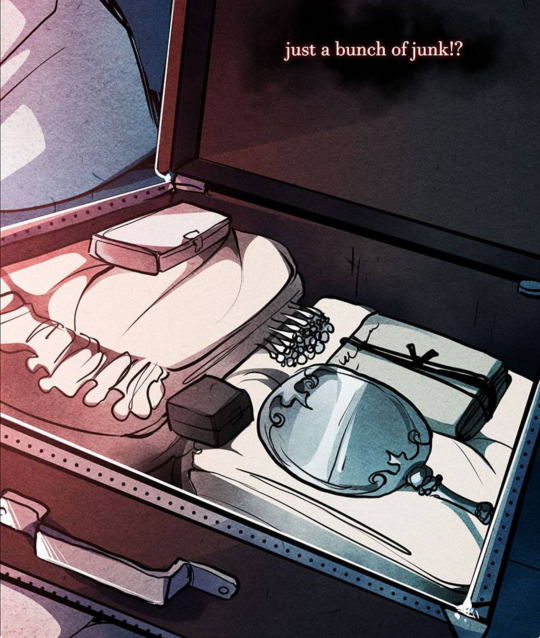
This is Lenore’s suitcase, the one she had handcuffed to her when she arrived.
Lenore herself said that these are her belongings from life, and it’s shown in the comic to be significant items too.
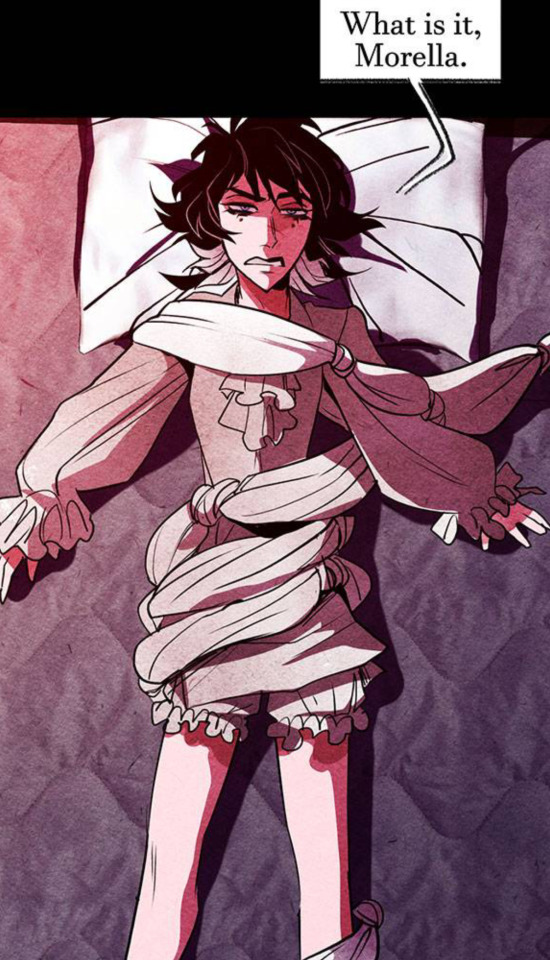
I mean, yeah, pajamas are a pretty standard thing to have, so maybe not those.
But. The first item I wanna talk about is the pearl clip. In one of the maze flashbacks, we see the moment Lenore and Annabel meet for the first time in life.
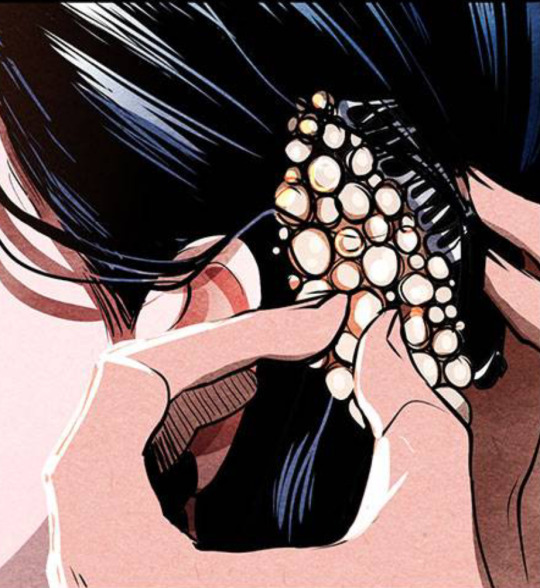
The maids are getting her ready for the important guest (Annabel) and pull her hair back with this clip.
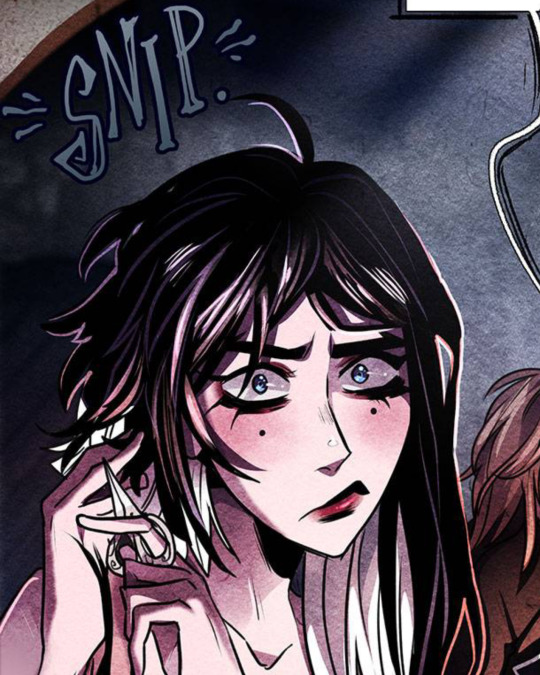
The next thing is the sewing kit. (the little white box in the top corner of the suitcase.) The significance of the rest of the sewing kit is debatable, but the scissors are definitely important. Lenore uses them to break out of her room at the academy, cut through the maze, and it’s revealed later that she used them to cut her hair in life.
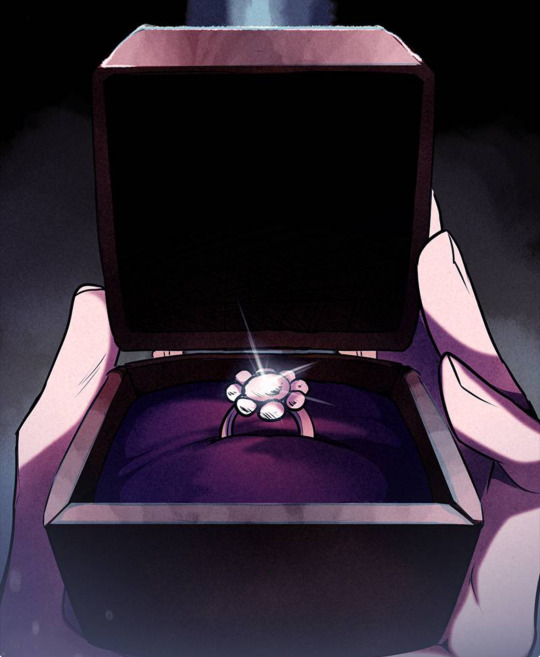
The iconic ring. The one that Annabel wears because she’s a smart woman who said yes and loves her wife fiancé. I guess Lenore only has the box now, but still. Not a lot to be said abt why this is important.
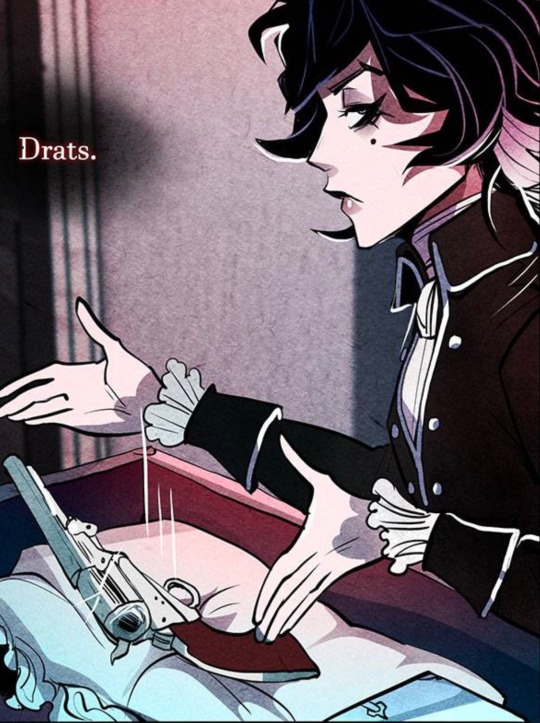
And the gun. The one she (presumably) used to kill Annabel and maybe herself. Ahem.
Anyways there’s still more objects. We see a mirror and a stack of cards/tiny book (idk exactly what it is). When she goes through the bag, Lenore also tosses out a pocket watch.
TBD I guess
#nevermore#nevermore webtoon#nevermore fandom#lenore vandernacht#lenore nevermore#nevermore webcomic
102 notes
·
View notes